Save Space In Your Fridge By Storing These Foods In The Pantry Where They Belong
There are foods such as dairy products, that do need to be stored in the fridge to prevent those items from going bad, but there are also a fair amount of food items that are perfectly ok living in your pantry.
Items such as hot sauces, jams, tropical fruit, and much more, as shelf-stable items and, might actually go bad faster in the fridge. Keep this in mind after big grocery shops!
Citrus Fruits Belong In The Pantry
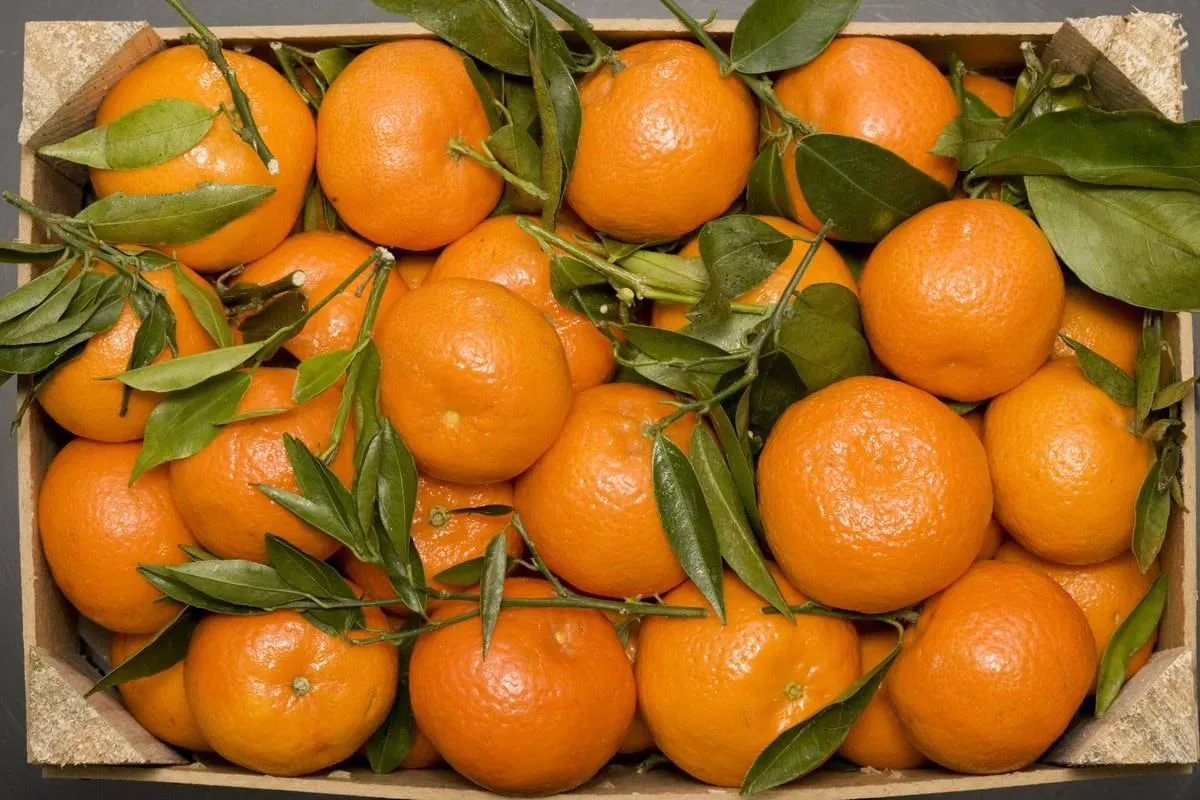
Fruit kept at room temperature will ripen faster and develop more sweetness, and this includes citrus fruits. According to Wise-Geek, citrus will mold more quickly if stored in the refrigerator.
Keep fruits like oranges, grapefruits, lemons, and limes out of the fridge. If you absolutely love cold oranges, just pop them into the fridge an hour or two before you want to eat them.
Most Tropical Fruits Like Tropical Environments
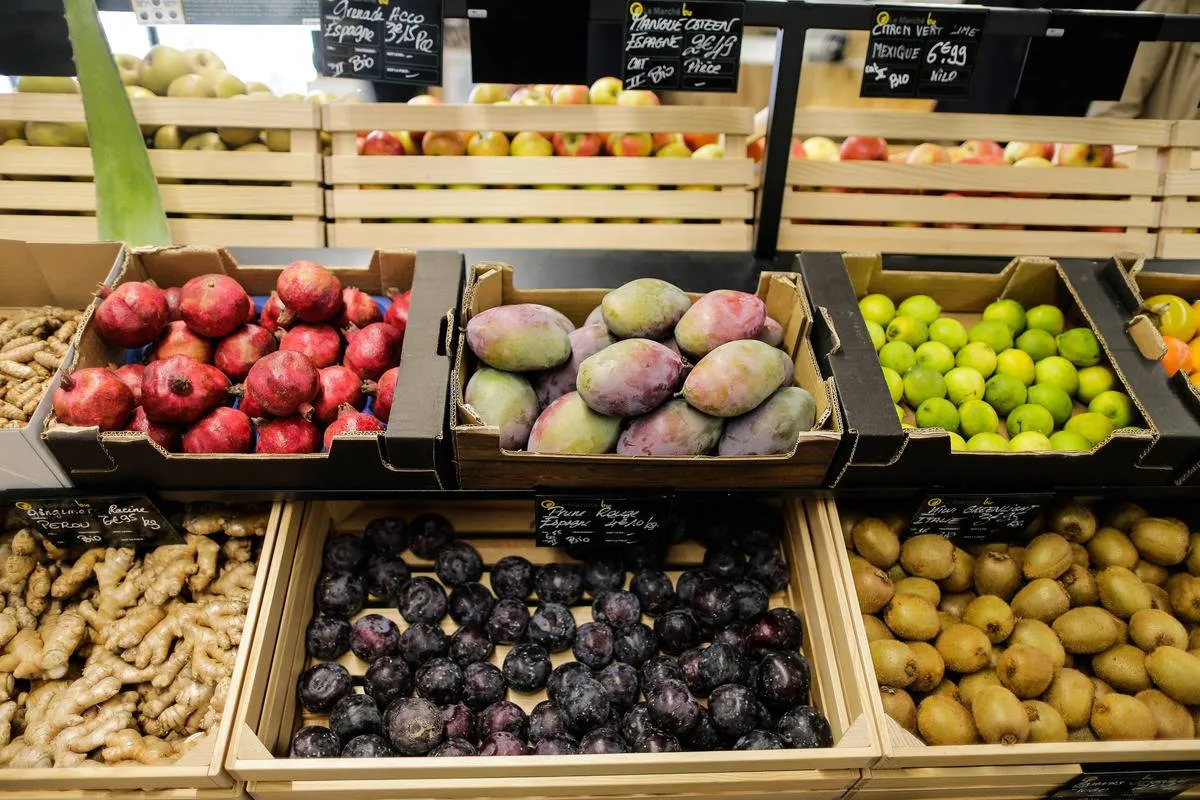
Tropical fruits come from tropical places where it's warm and rainy and there's lots of sunshine. You don't want to take a tropical fruit and put it in a cool, dry fridge.
According to The Daily Ardmoreite, fruit like mangos, plums, kiwis, apricots, and peaches ripen slower in the fridge. They'll also lose flavor and nutrients faster, and they'll suffer cold damage because they're not used to the cooler climate.
Soy Sauce Doesn't Go In The Fridge
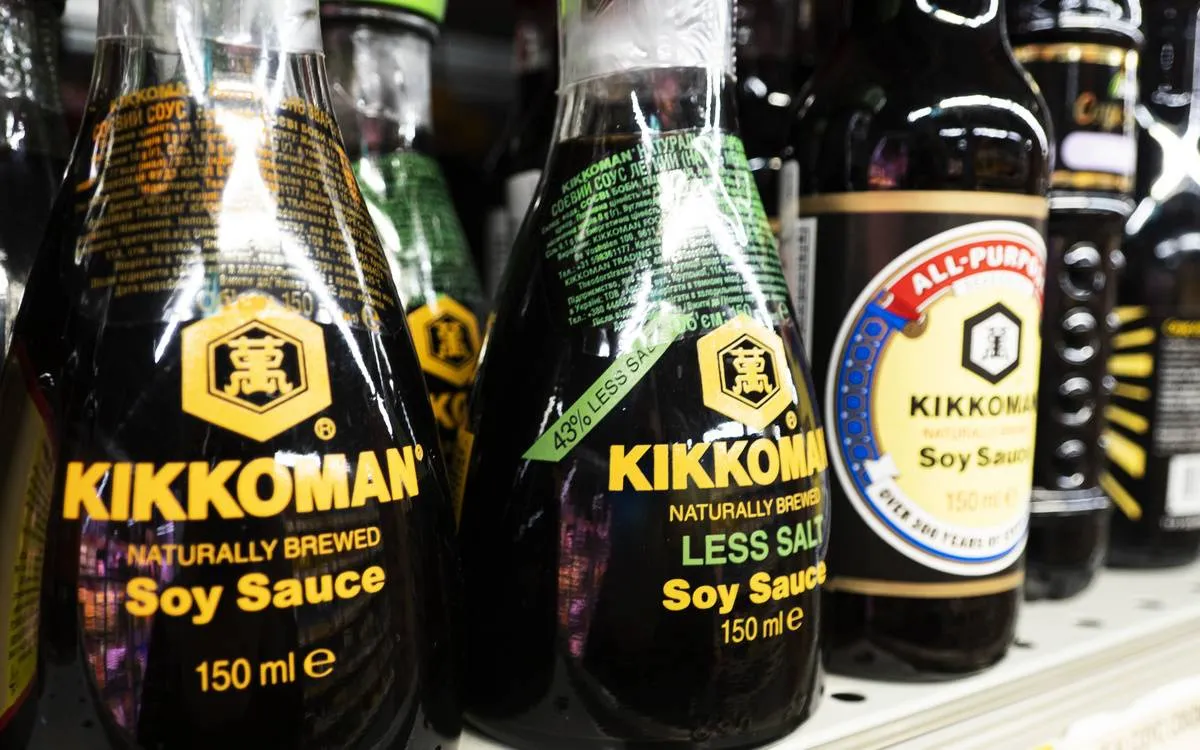
Soy sauce does not need to be kept in the fridge. It can live just fine in a pantry for up to a year and a half, just check the label.
According to The Kitchn, the long shelf life is because soy sauce is fermented.
Pickles Are Preserved
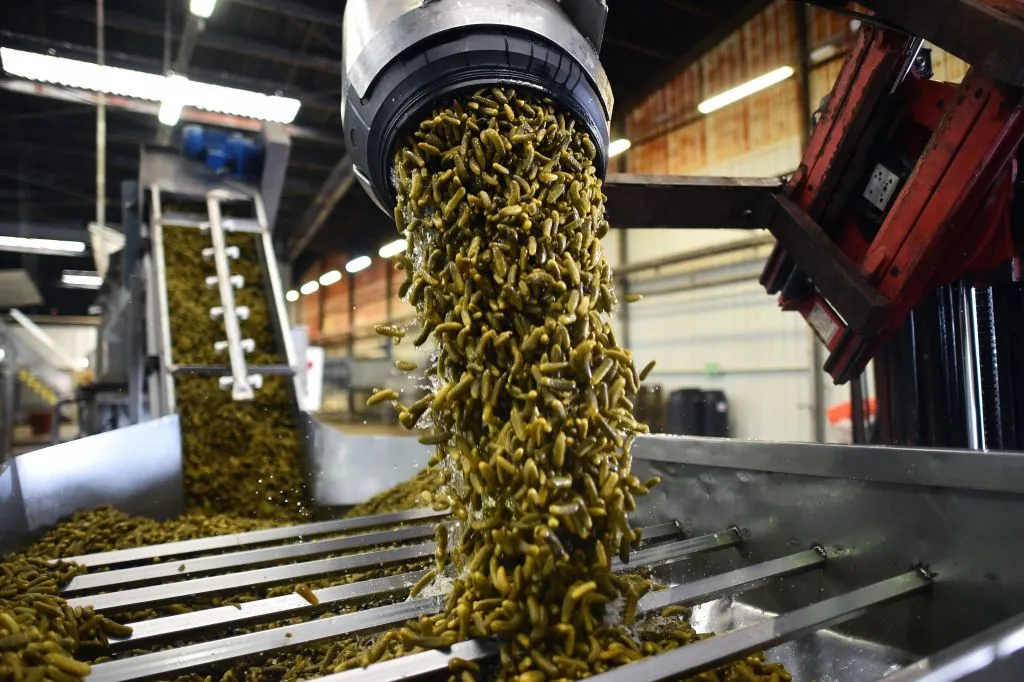
Pickles are full of natural preservatives like vinegar and salt, so you don't need to store them in the fridge until the container is opened.
Pasteurized pickles can be put in a pantry until they are opened, while unpasteurized pickles need to be put in a refrigerator right away.
For Heaven's Sake, Don't Refrigerate Tomatoes!

These delicious and juicy tomatoes thrive in cool, dry, airy environments. Leave them in a bowl on the counter.
According to a study by researcher Denise Tieman of the University of Florida in Gainesville, storing tomatoes in the fridge will cause them to lose all their delicious flavor, texture, and nutrients.
Cantaloupe Doesn't Belong In The Fridge
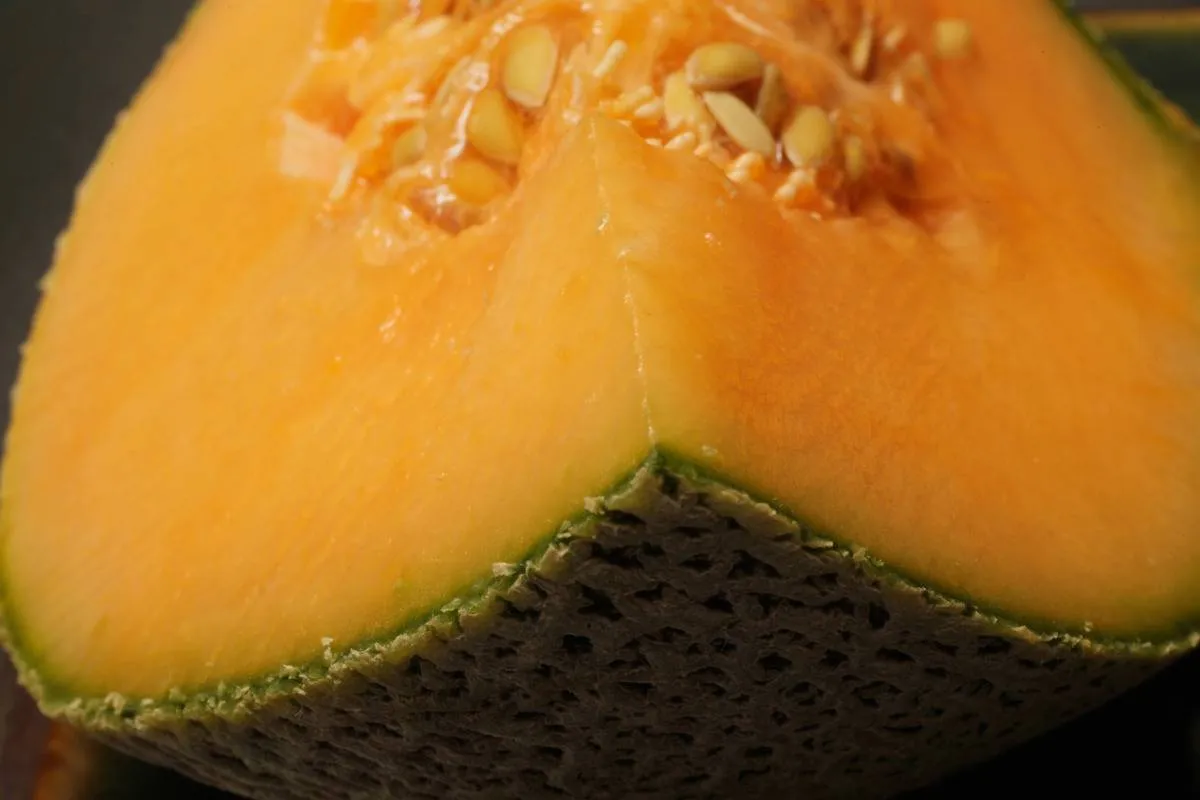
Research shows that refrigeration actually lowers the number of anti-oxidants within a sealed melon.
You should slice up your cantaloupe, place it in a sealed container, and chill it before serving.
Don't Cool Your Pears
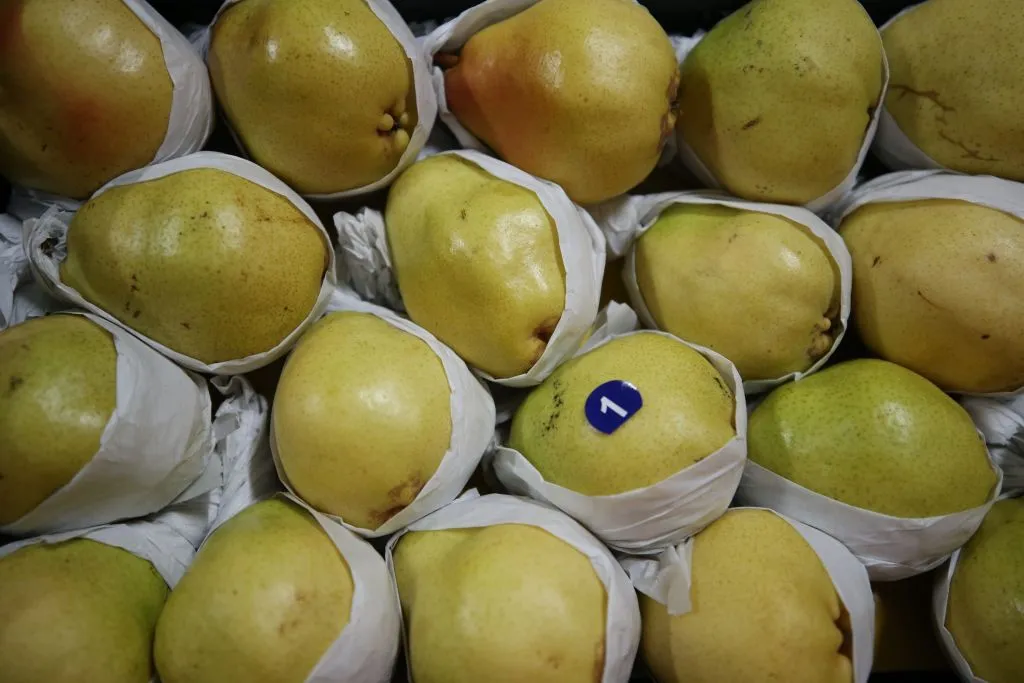
Pears ripen at room temperature, so keep them stored that way to get that perfect pear taste. According to Foodiosity, cold air will only delay the ripening process and make the pears taste stale.
However, once the pears have ripened, then you can put them in the fridge to keep them crisp and delicious for longer.
Eggplant Is Sensitive
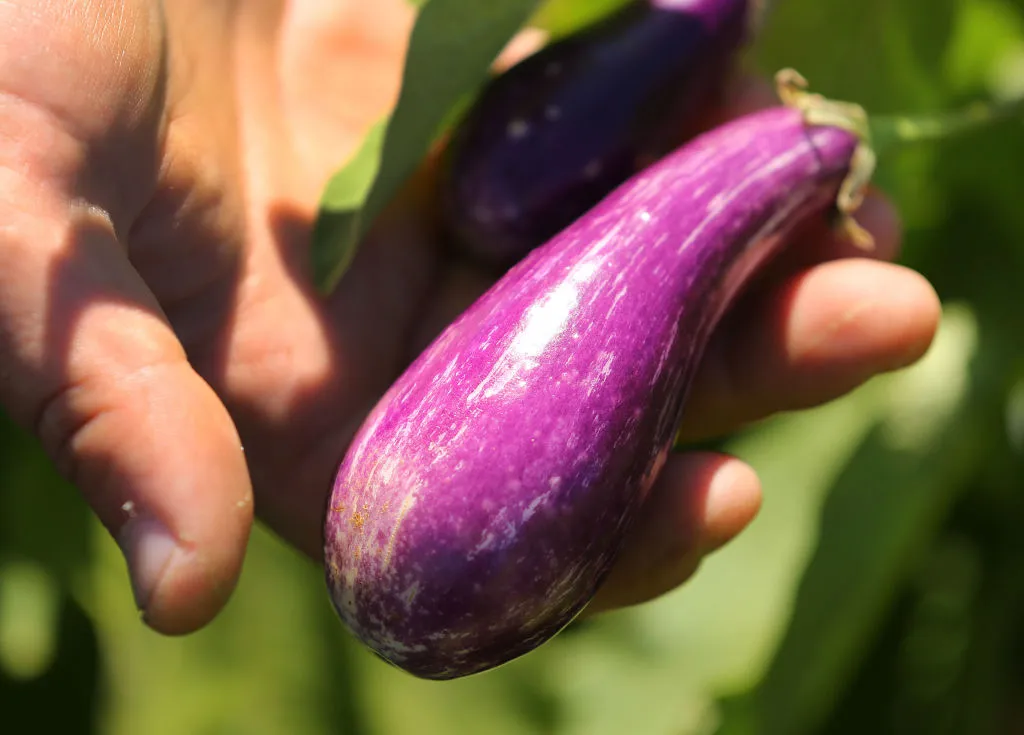
Eggplant is very sensitive to sunlight and to temperature.
According to The Kitchn, storing eggplant at a temperature below 50 degrees Fahrenheit will result in the browning of seeds, chilling injuries, and even surface bronzing. It's best to leave the vegetables at room temperature.
Melons Don't Need To Be Refrigerated
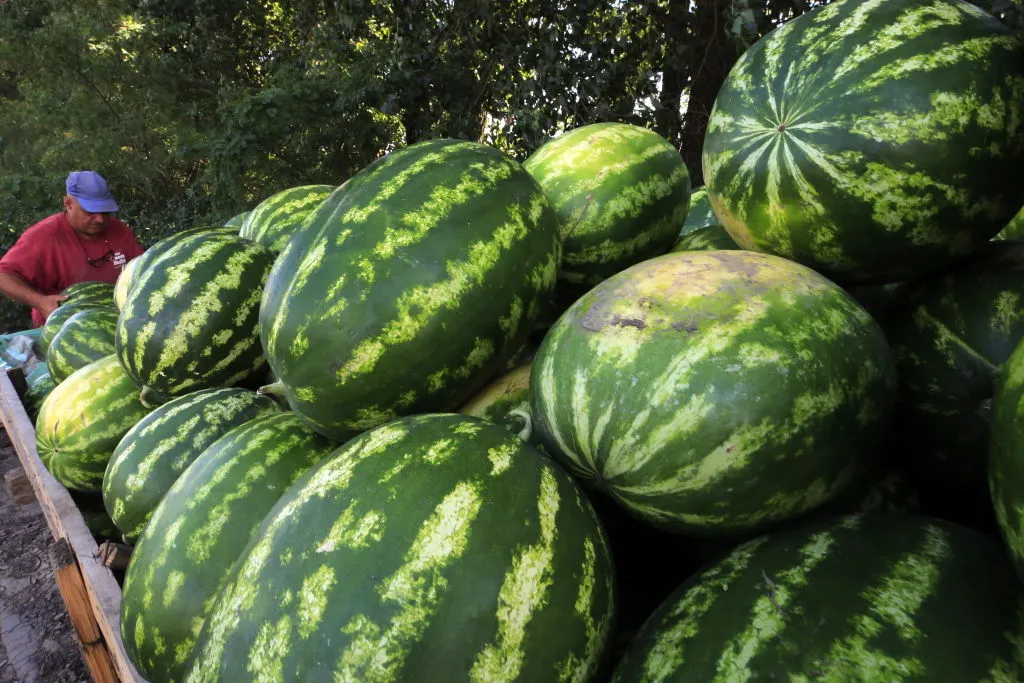
According to the U.S. Department of Agriculture, watermelon will keep its natural antioxidant levels balanced when kept at room temperature, decreasing when put in the fridge.
If you want that delicious cold melon, store it at room temperature, slice it up about an hour before you're ready to eat it, put those slices in the fridge, and enjoy an hour later.
Jam Your Jam Into The Pantry
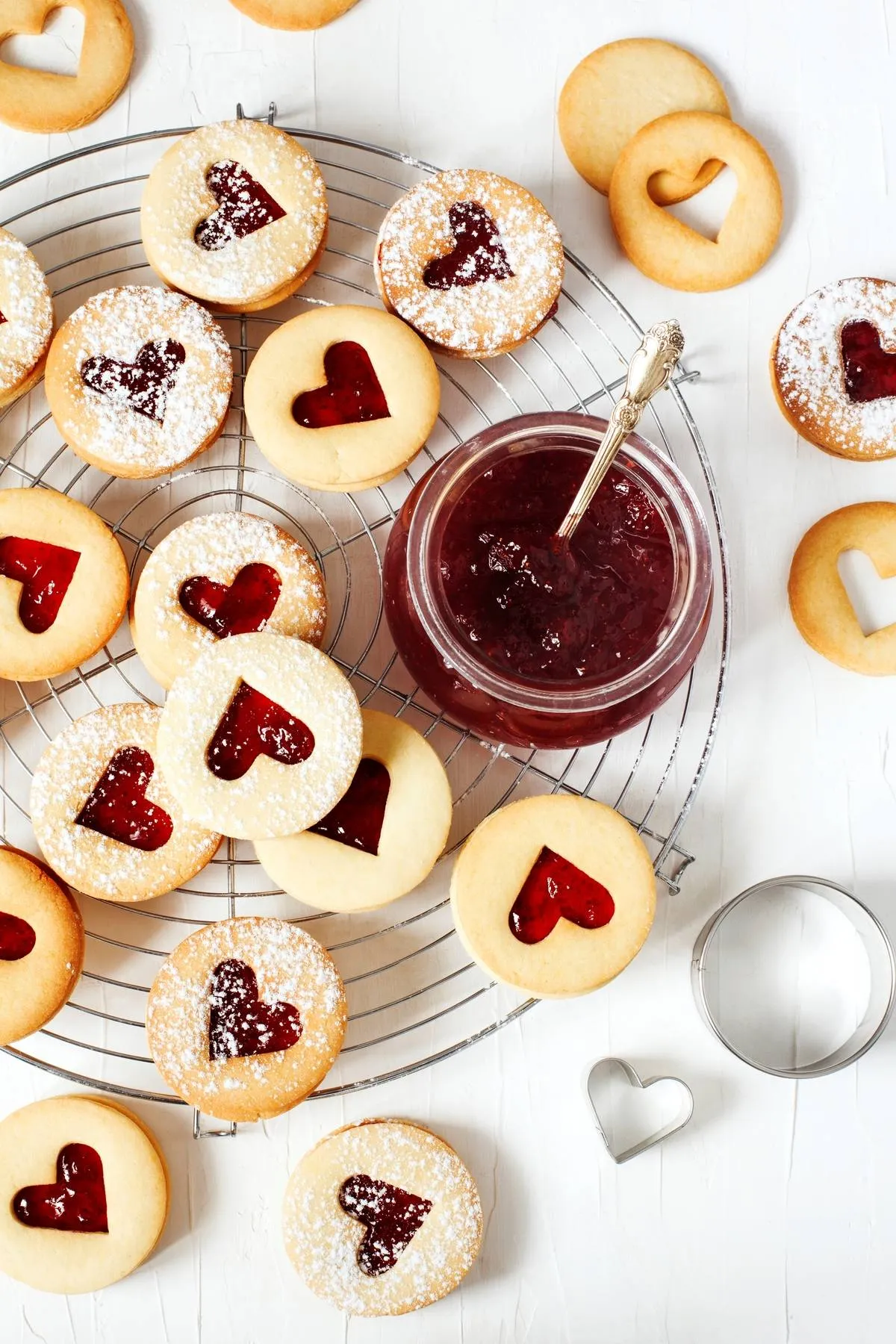
According to Does It Go Bad, Jam is packed with natural and artificial preservatives and built to last. Keep it in the pantry, and then transfer it to the fridge once opened.
Also, take care not to contaminate a jam jar. For instance, don't use the same knife to spread your jam and cut your cheese. If you get any cheese in your jam jar, that will make it spoil faster.
Don't Put Onions In The Fridge
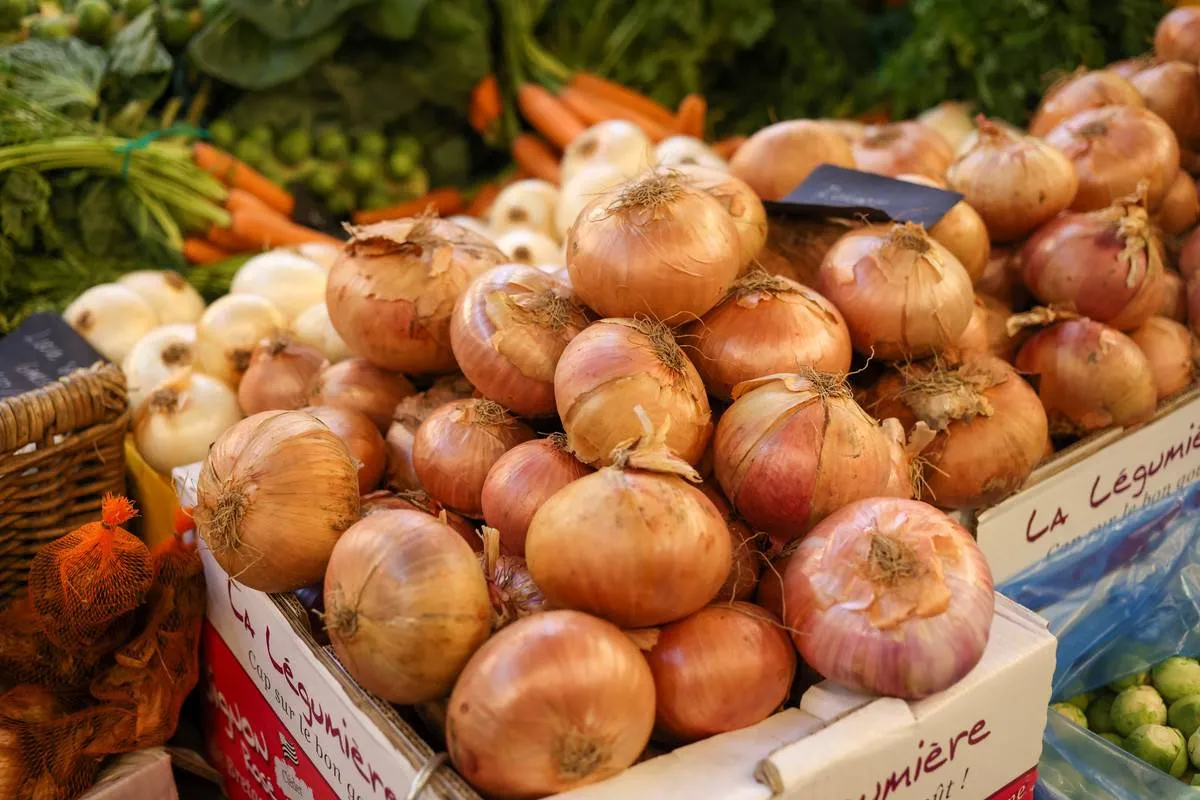
According to Healthline, onions turn moldy and spoil quickly if left in the fridge. You should have a designated onion drawer in a dark, dry area to keep them separate from your other pantry food items and to keep them fresh.
If you have some leftover peeled onion, you can store that in the fridge in an airtight container, but make sure to use it within the next few days.
Hot Sauce Likes It Hot
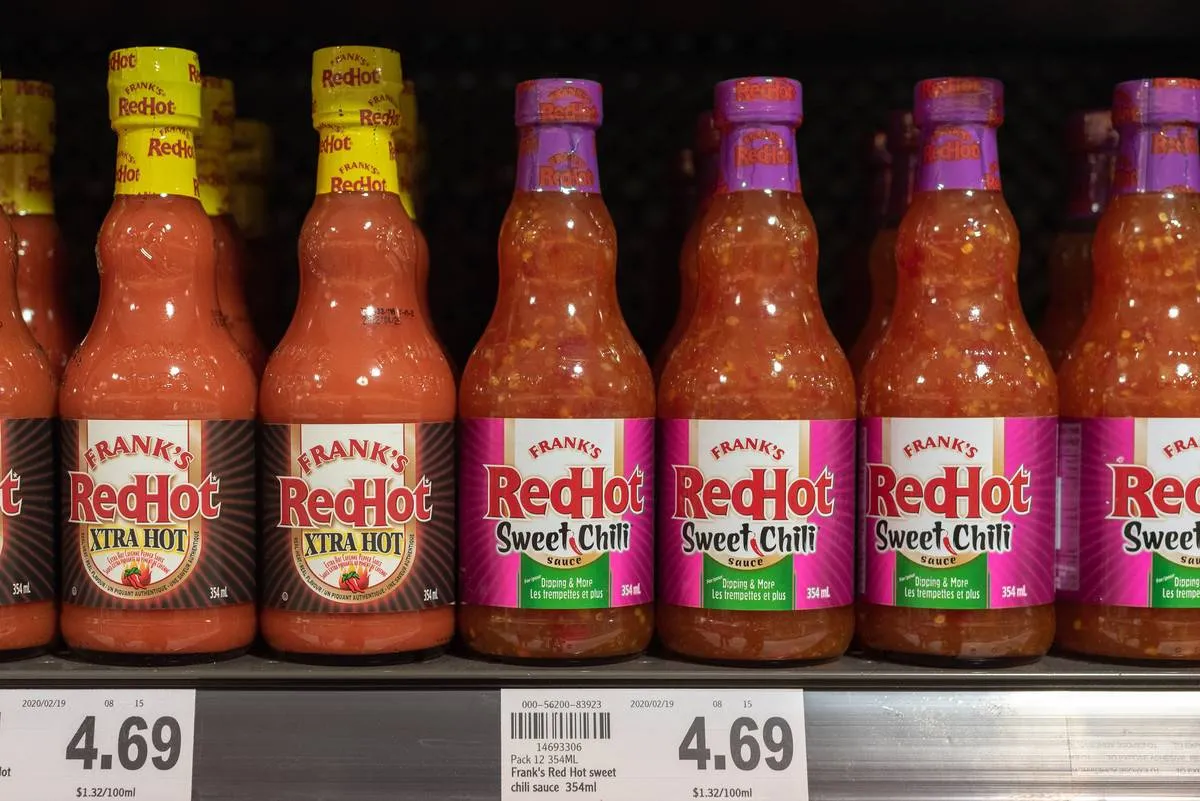
According to Southern Living, hot sauces are full of natural preservatives like vinegar and salt, resulting in a long shelf life that doesn't need to be spent in the refrigerator.
Store your hot sauce away from direct sunlight and keep it in a cool, dry place like a pantry or a cupboard.
Keep Garlic Out Of The Fridge
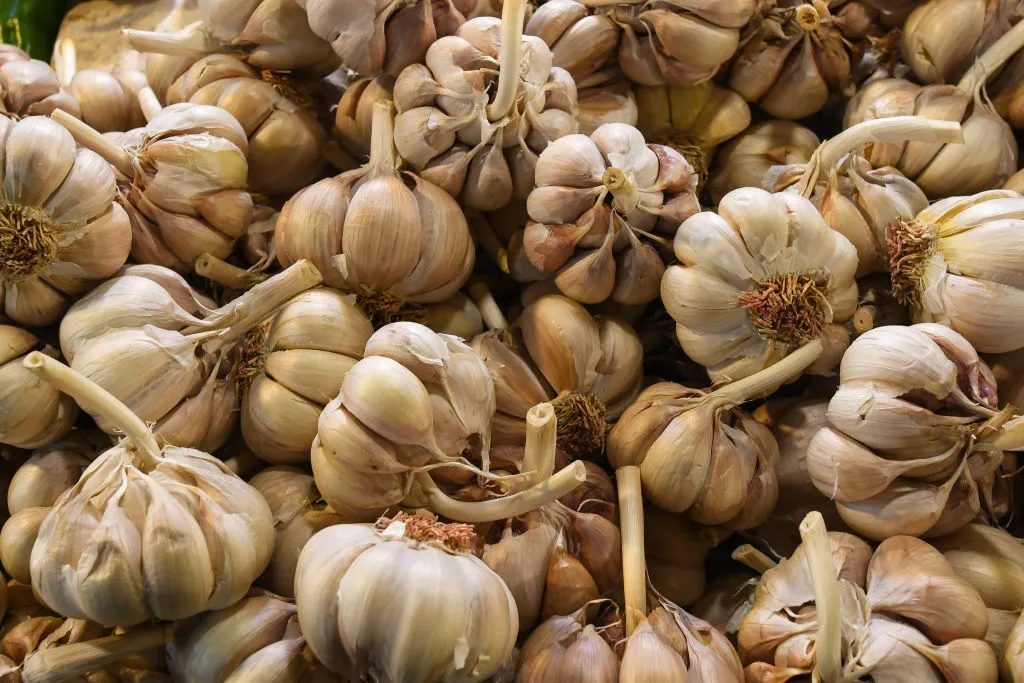
According to The Pioneer Woman, garlic can get rubbery and even start to sprout within days of being put in the refrigerator. It may look normal on the outside, but then when you cut it open, you'll notice little green sprouts inside.
Leave your garlic in a specialized garlic jar or even in a pair of breathable nylon pantyhose. You can also peel the garlic and store the peeled cloves in your freezer.
Pick A Peck Of Pickled Peppers
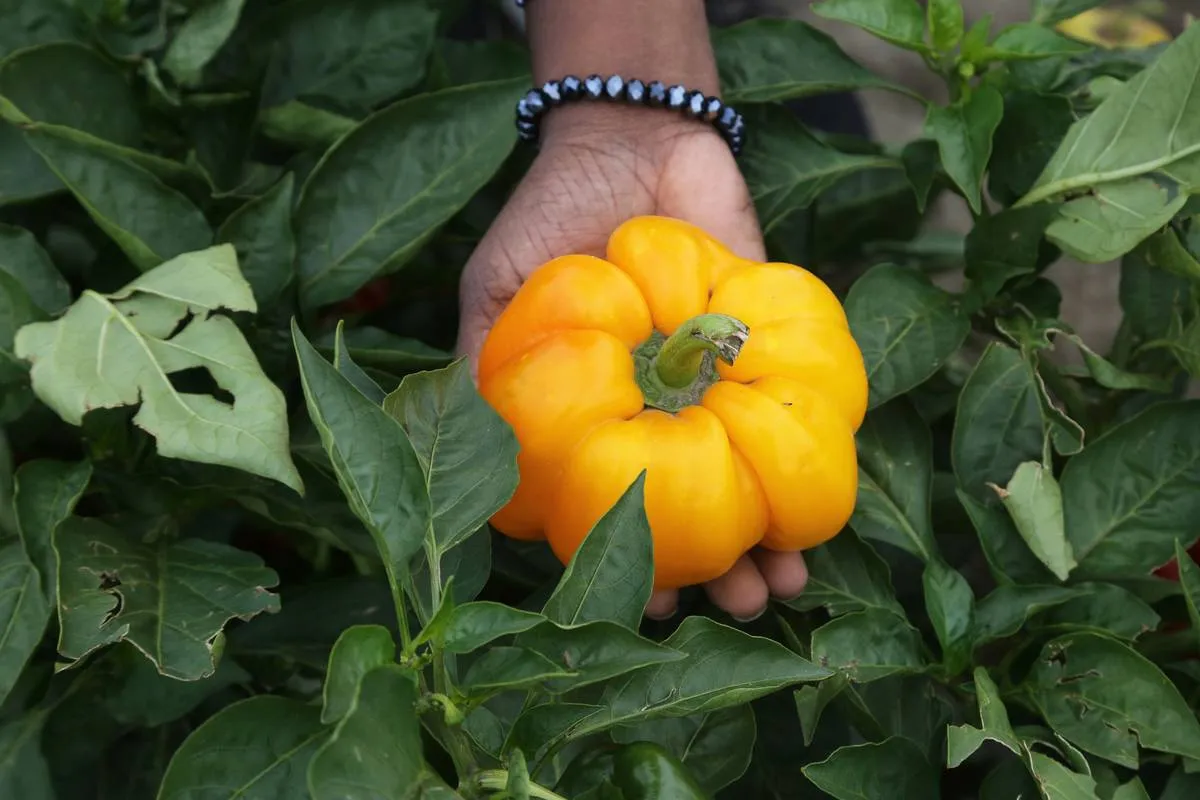
According to Mashed, refrigerator air will preserve peppers and make them last longer, but it will also cause the peppers to taste more dull and flavorless.
Store peppers, and even chili peppers, in a cool, dry place.
Don't Put Flour In The Fridge
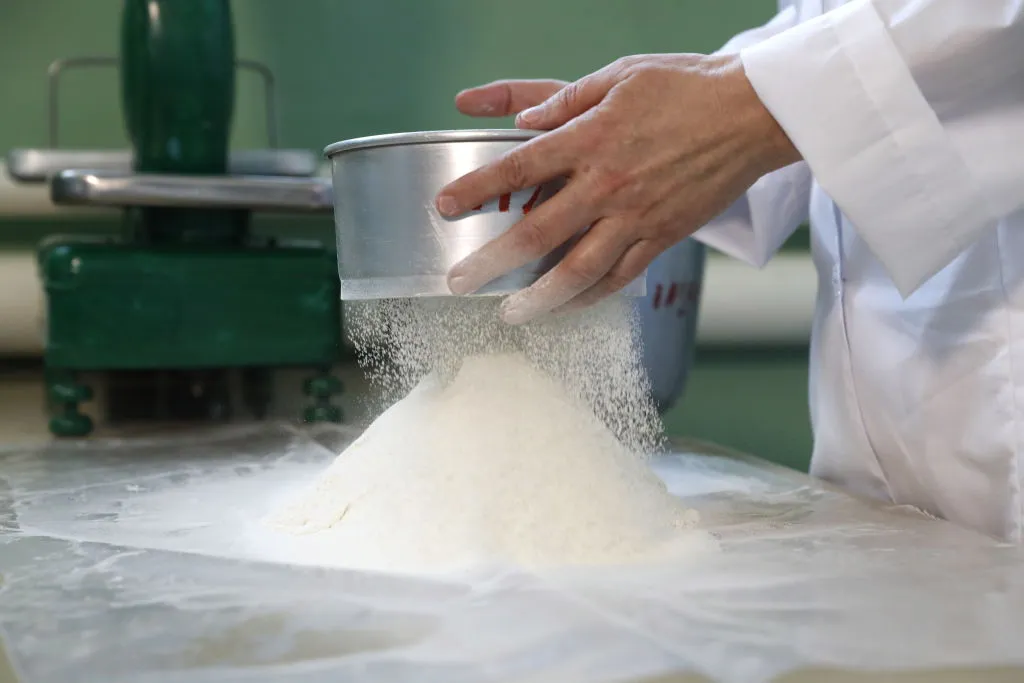
While many people don't think to put flour in the refrigerator, there are still some who need to be told it isn't great storage space for the ingredient.
According to The Spruce Eats, "Store all-purpose and other refined flours in a cool, dry place protected from sunlight. Refined flour keeps up to one year in the pantry under these ideal conditions."
Put The Potatoes Away
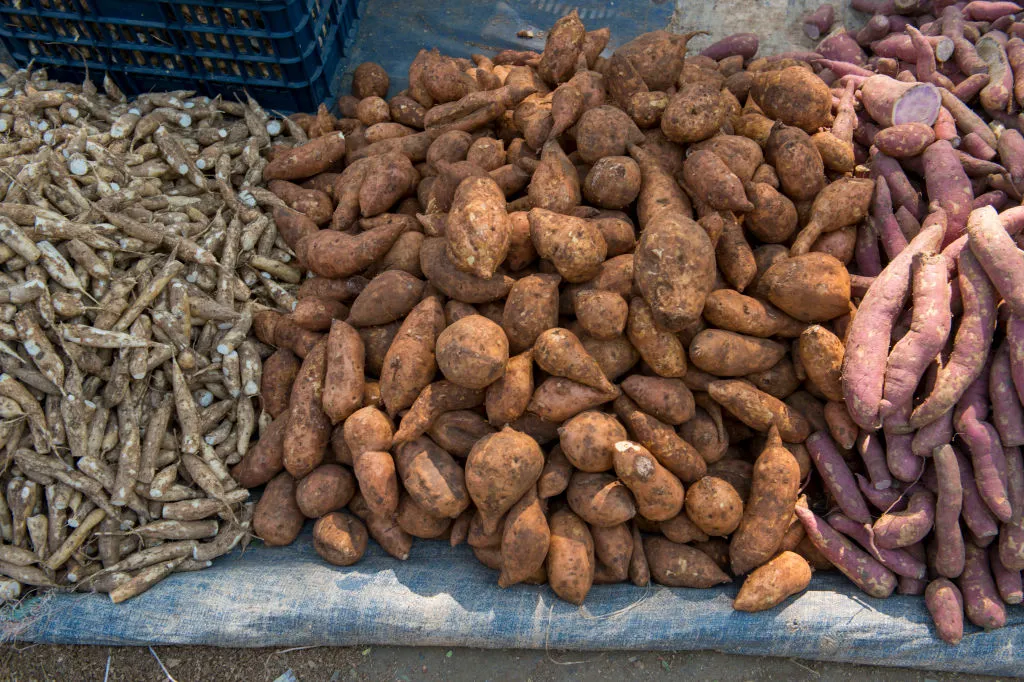
According to NiDirect Government Services, cold temperatures in your refrigerator will cause the starch in potatoes to turn into sugar faster.
You should make sure to take your potatoes out of the bag they came in as soon as you get them home so that they can air out. Too much moisture will cause them to rot.
Oh Honey, Don't Put Honey In The Fridge
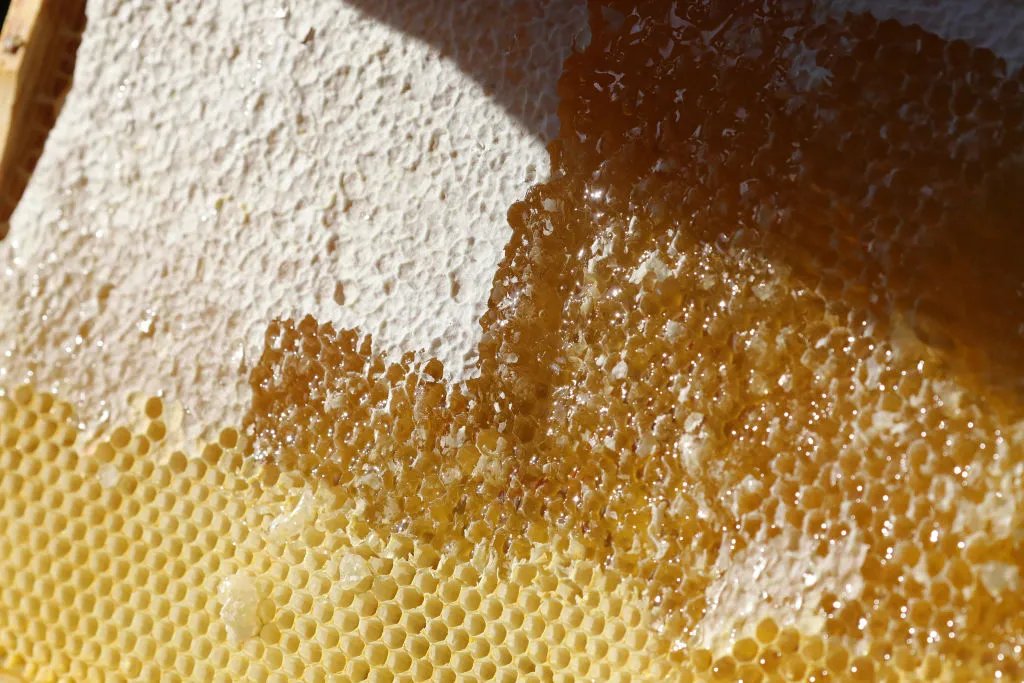
Honey is a natural preservative, so it doesn't need to be kept in the fridge or freezer for it to last a long time.
According to My Recipes, the cold air in a refrigerator will cause honey to crystallize, resulting in a solid form. If your honey does crystallize, just put the whole jar in a warm water bath to dissolve the crystals.
Don't Refrigerate Your Leftover Coffee

Generally, coffee beans need to be stored in a cool, dry place. According to Serious Coffee, the refrigerator isn't a cool enough environment to keep coffee fresh.
Brewed coffee can make everything else in your fridge smell like coffee, and if it's too hot, it can raise the temperature of your whole fridge, which can damage any meat and dairy you have in there.
Strawberries Need To Be Stored A Specific Way
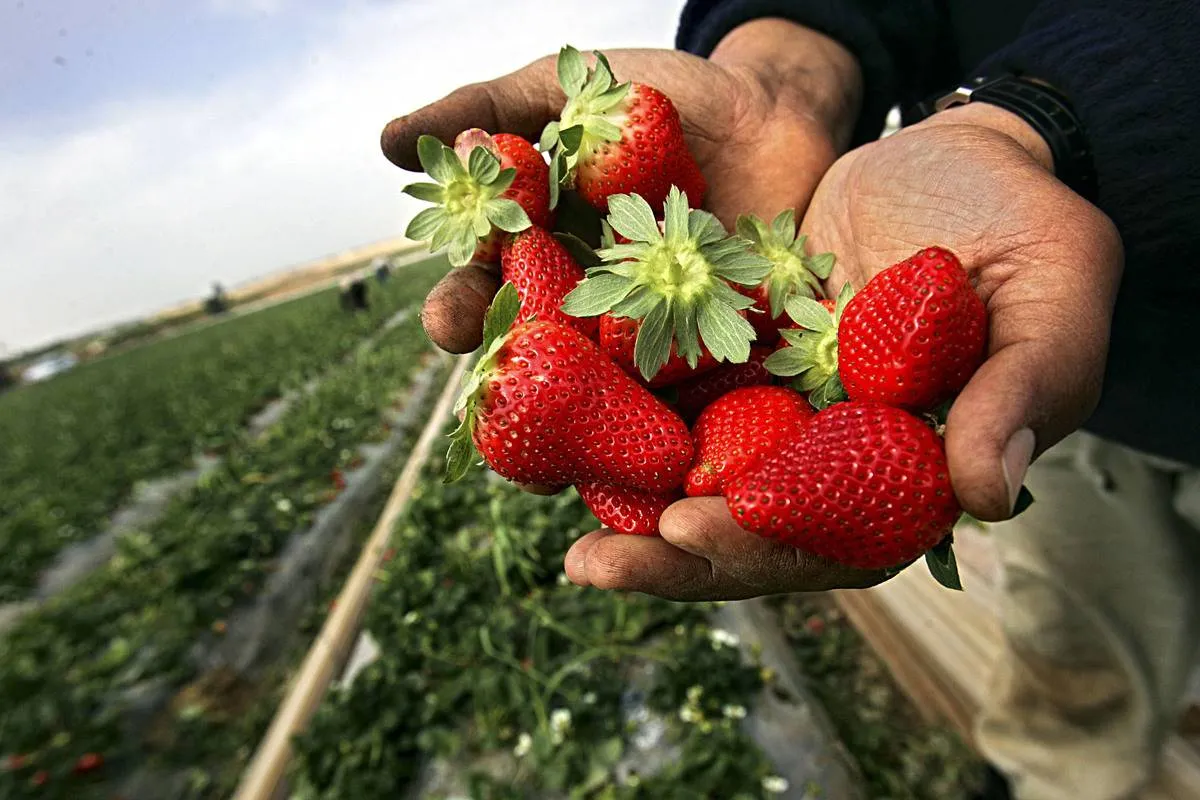
If you plan to use your strawberries within 48 hours, it's best to leave them on your countertop. If you plan to use them in a few weeks, move them to the freezer instead.
According to The Food Network, if you want to put them in the fridge, you should make sure they are in a single layer with the stems on. The stems will prolong their life, and by leaving them in one layer, you won't risk having one bad berry spoil the whole bunch.
Don't Dry Out Your Bread
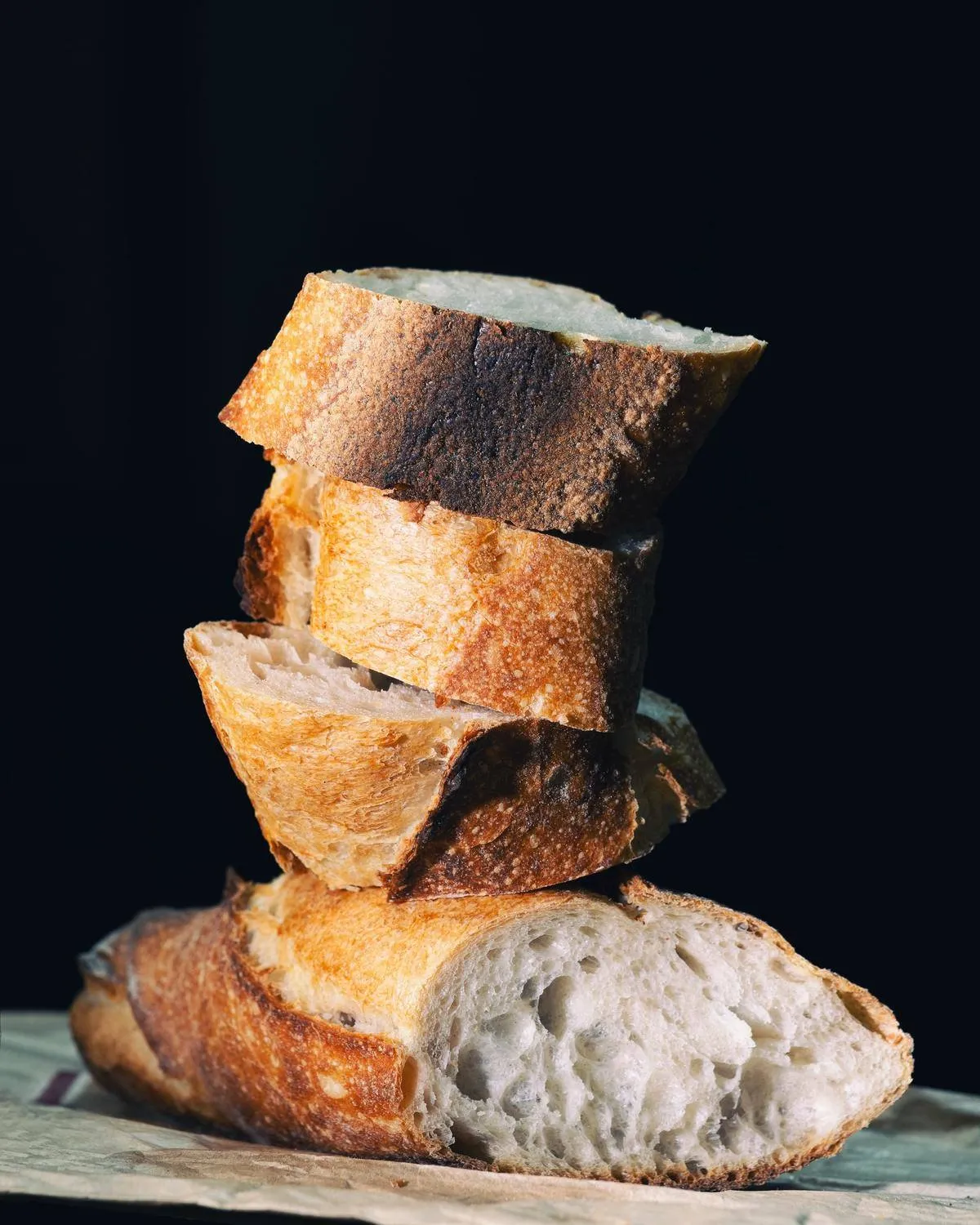
According to Serious Eats, at cold temperatures, bread will turn stale, dry, and tasteless. It will also act as a sponge and soak up whatever odors are lingering around your fridge.
To be safe, store leftover bread in a breadbox, which will keep moisture from escaping. You can also store your bread in a microwave if you don't have a breadbox.
Chocolate Doesn't Belong In The Fridge (Sorry)
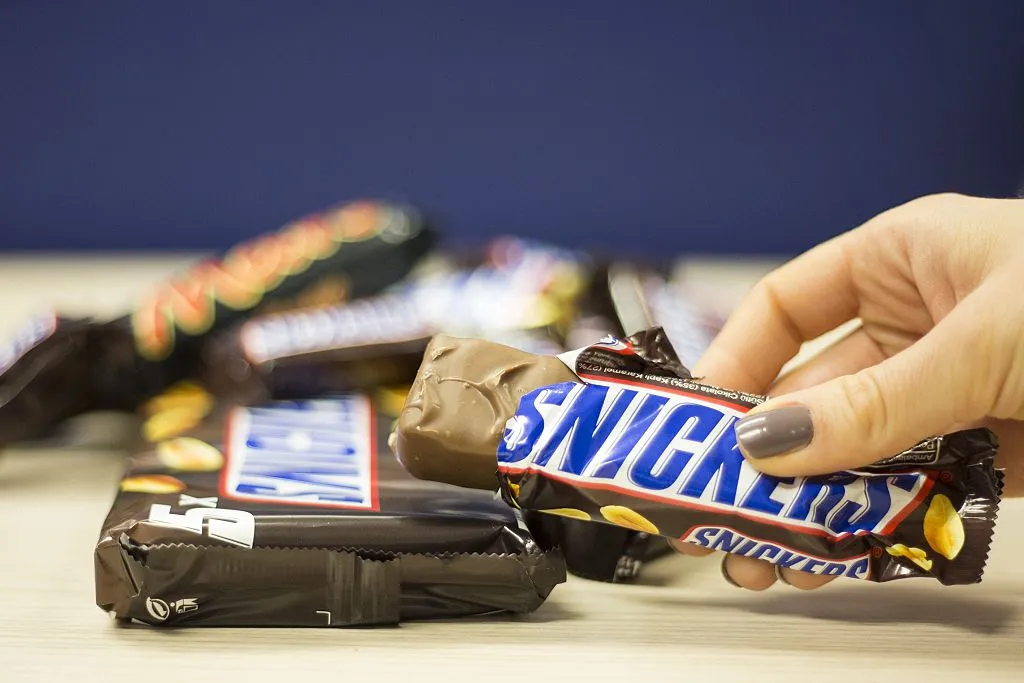
Many people absolutely love cold chocolate, but according to Manoa Chocolate, the ideal temperature for chocolate is actually between 65 and 68°F. That is much warmer than the average refrigerator.
You should only store your chocolate in the fridge if you live in a very warm part of the world and your chocolate is at risk of melting.
Keep Pumpkins In The Basement
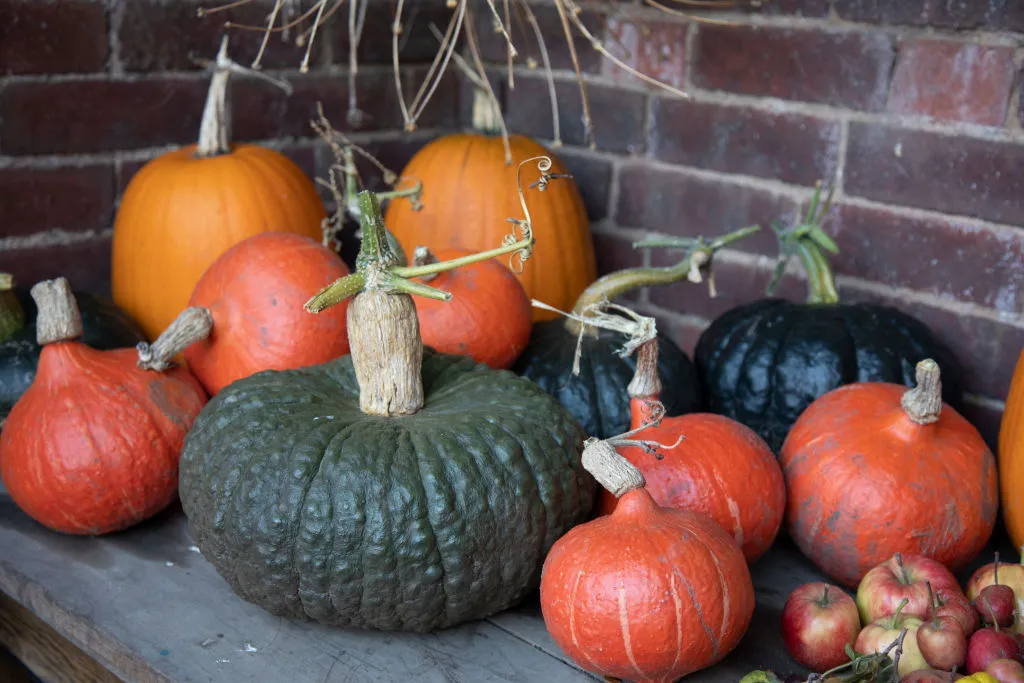
Pumpkins thrive in cool, dark places. A basement or pantry would be an ideal spot to store them.
Refrigerators are too moist for pumpkins. According to NPR, pumpkins are best placed in an environment between 50 and 55 degrees Fahrenheit. Anything cooler, such as a refrigerator, will quickly deteriorate the skin.
A Lot Of Salad Dressings Don't Need To Be In The Fridge
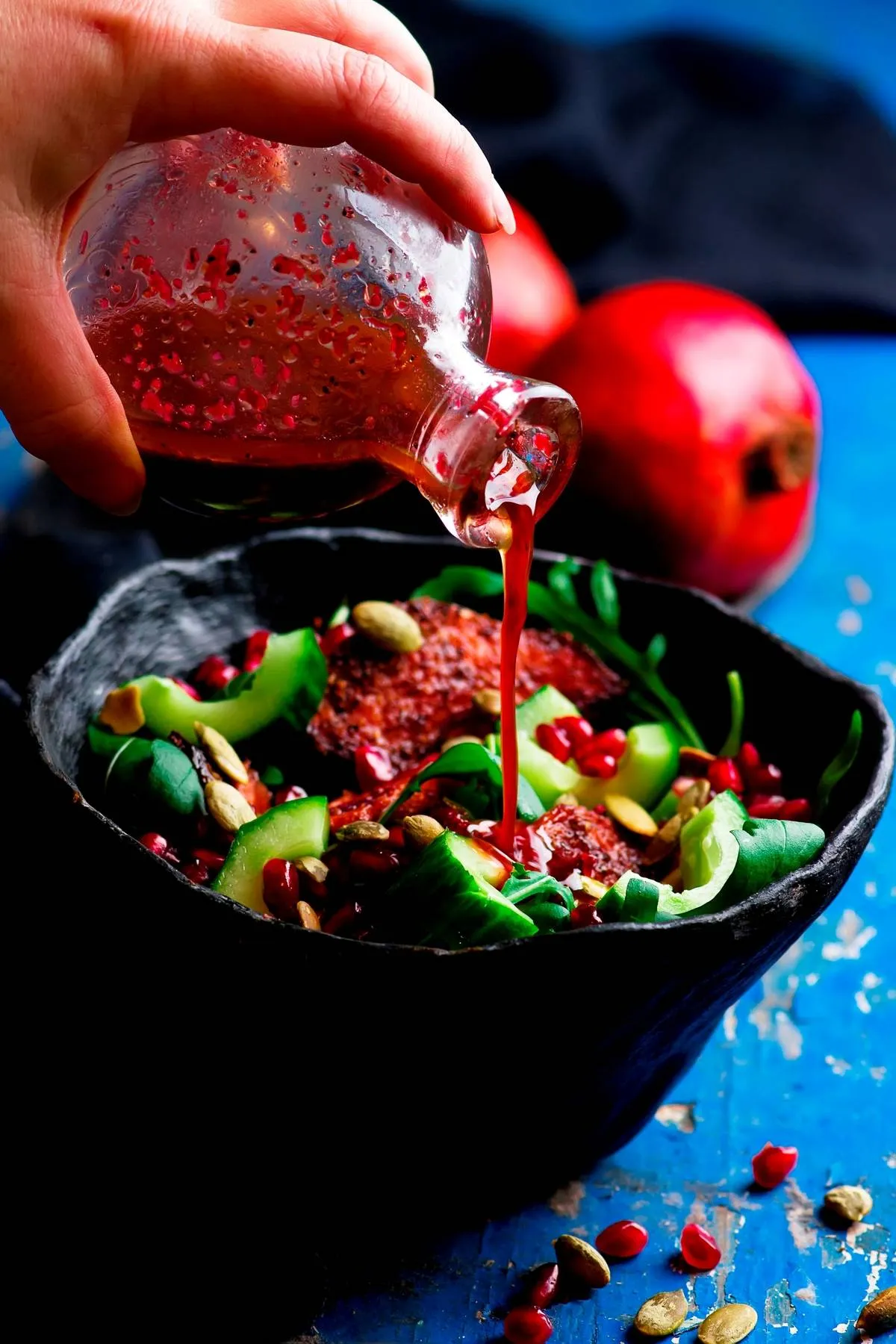
While salad dressings containing dairy products like ranch dressing or blue cheese dressing need to be kept in the fridge, many oil-based vinaigrettes can be kept out of the cold.
According to Insider, neither vinegar nor oil requires refrigeration, so why would they if combined? However, if your vinaigrette contains garlic or lemon juice, it's best to store it in the fridge.
Do Not Keep Cereal In The Fridge
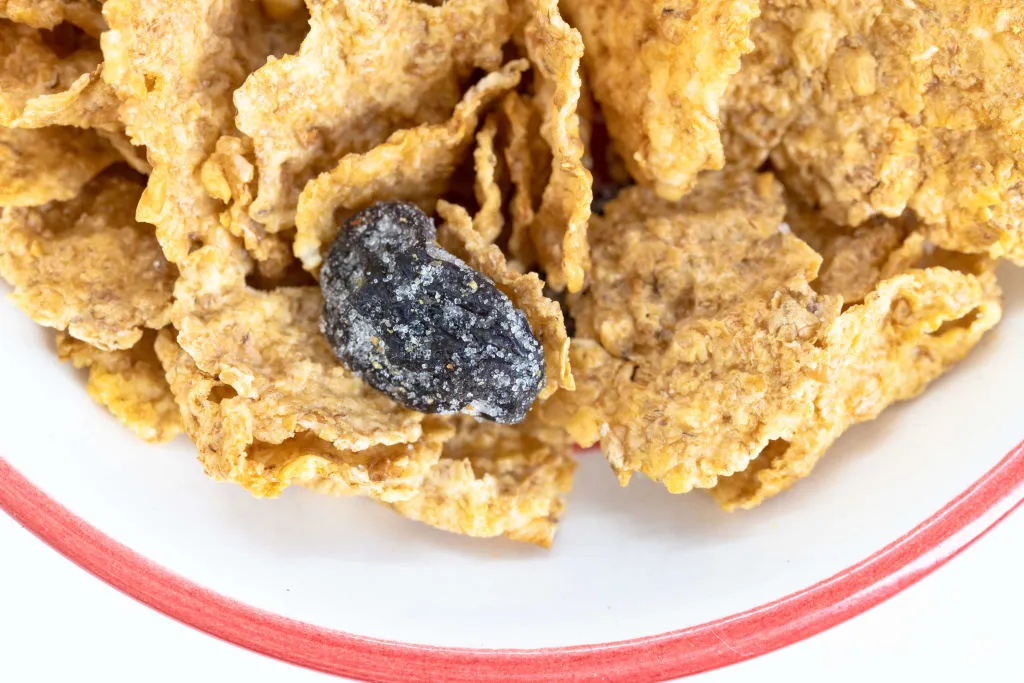
According to The Daily Meal, the moisture in a fridge will cause cereal to wilt and become much less crunchy.
Cereal should always be stored in a cool, dry place, like a pantry or a cupboard. Nobody likes soggy cereal!
Keep Peanut Butter In The Pantry
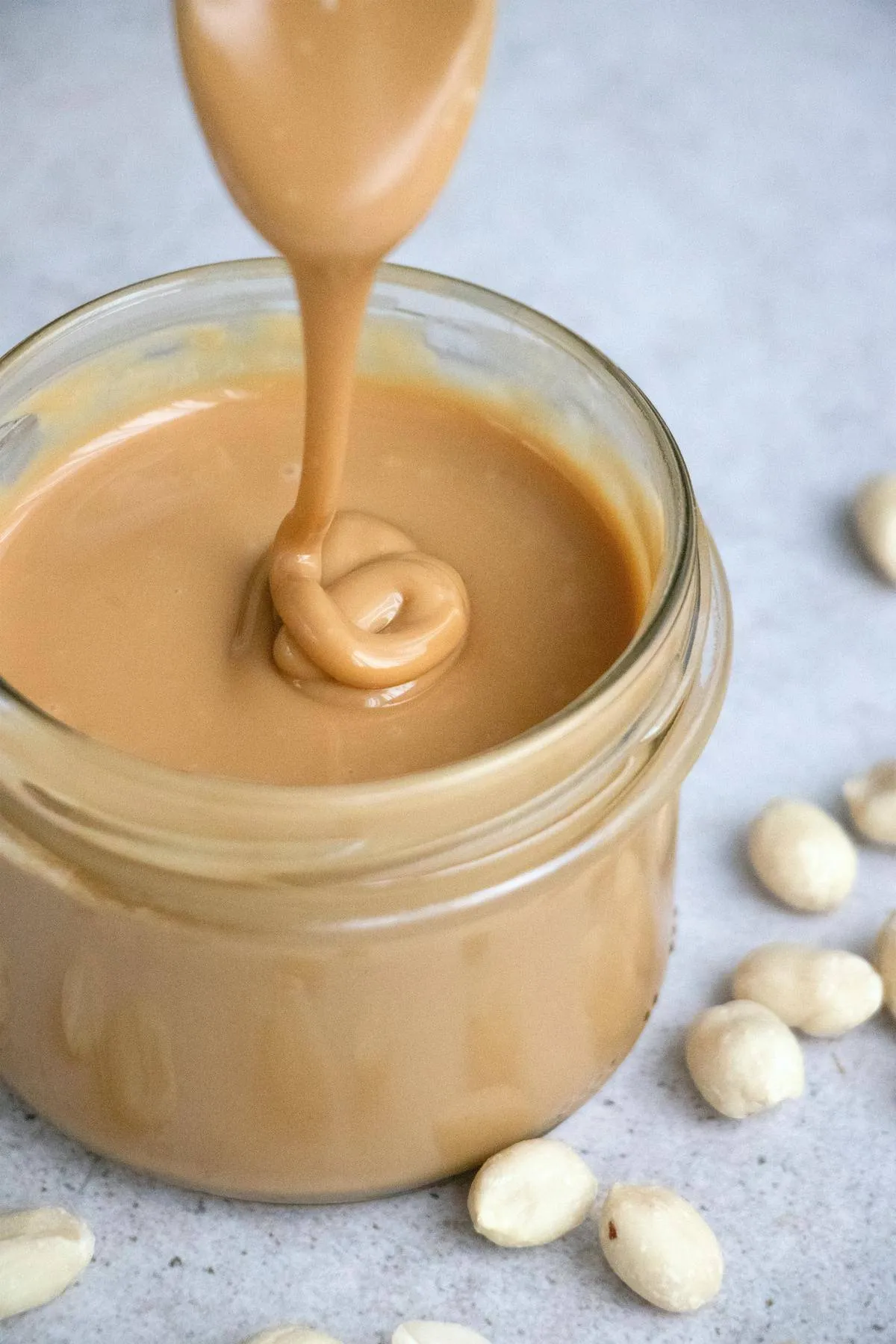
Cold refrigerator temperatures can make peanut butter rock solid, so keeping it in the cupboard or the pantry is much better.
According to the National Peanut Board, storing an opened jar of peanut butter in the pantry has a shelf life of around two to three months. After that time, people should think about placing it in the fridge to extend its life for a few months.
Pineapple Doesn't Need To Go In The Fridge
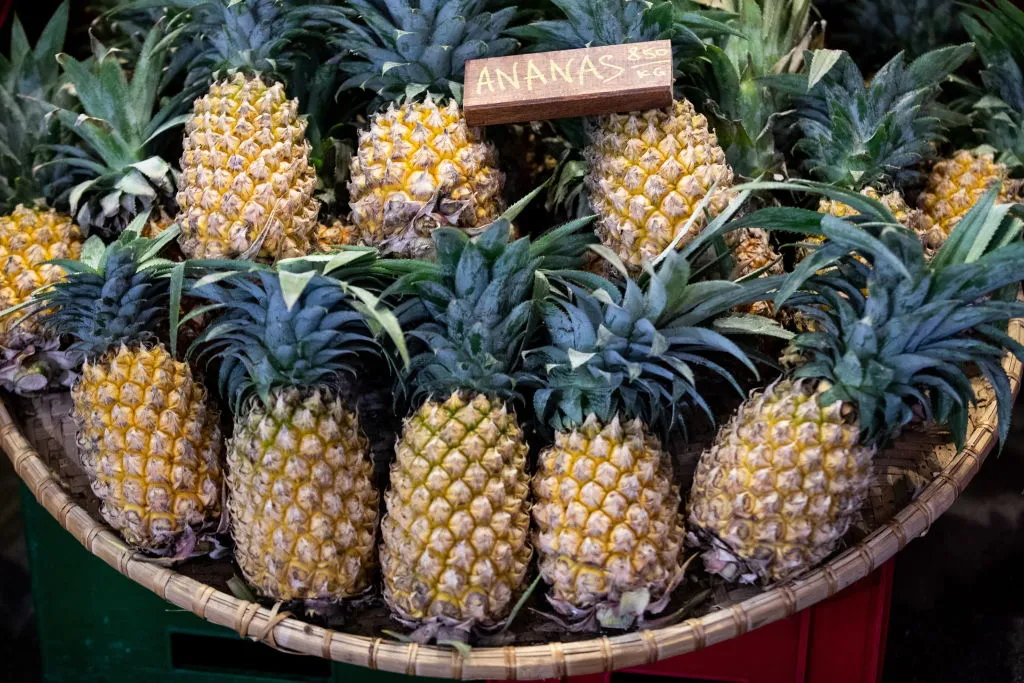
Once pineapples are harvested, they actually don't become much riper.
According to Good Food, pineapples shouldn't be stored in the fridge. Instead, keep them on the counter at room temperature until they are cut.
Save The Carrots!
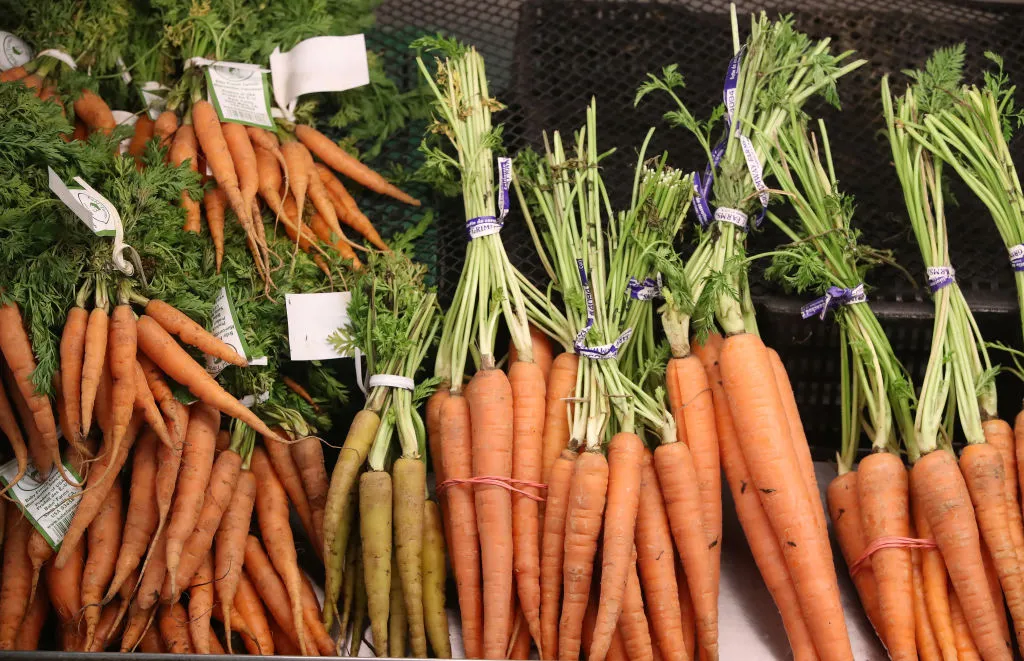
According to Food52, carrots can stay in the refrigerator if, and only if, they are stored properly.
Carrots can actually rot and become waterlogged and droopy if they're left in the fridge for too long. You should store your carrots away from direct sunlight in a place with low moisture.
Papaya Is Best Out Of The Fridge
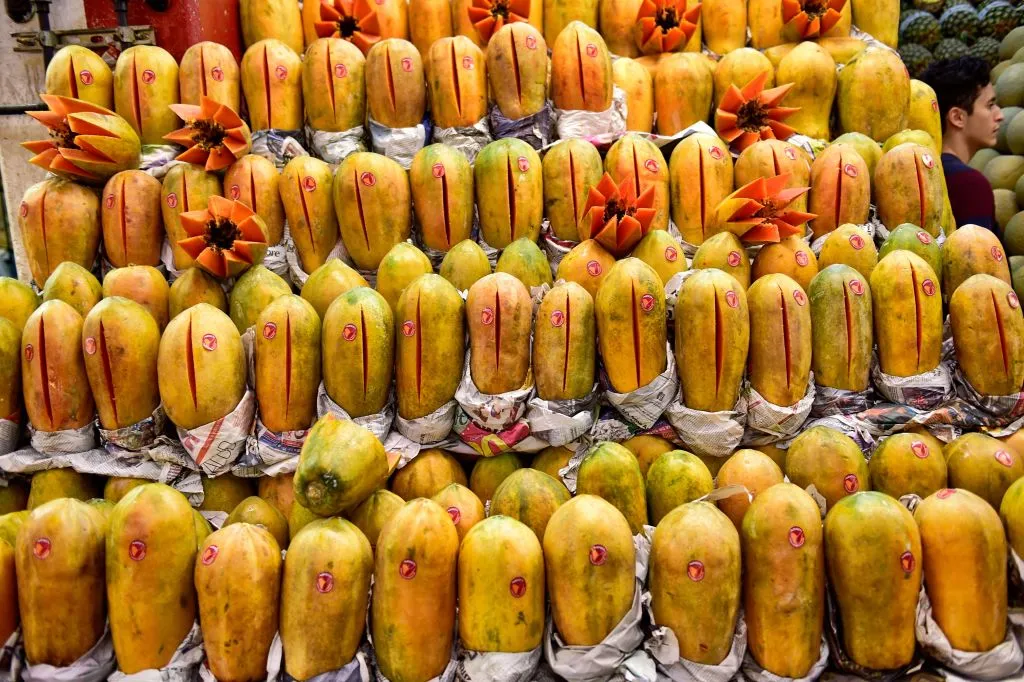
According to The Spruce Eats, putting papaya in the fridge will slow down the fruit's ripening process. This fruit needs all the flavors it can get, so you will want to keep it out of the refrigerator.
That being said, if a papaya is not going to be used for a few days, you may want to store it in the fridge to preserve its freshness.
'Cool As A Cucumber' Is Just A Saying
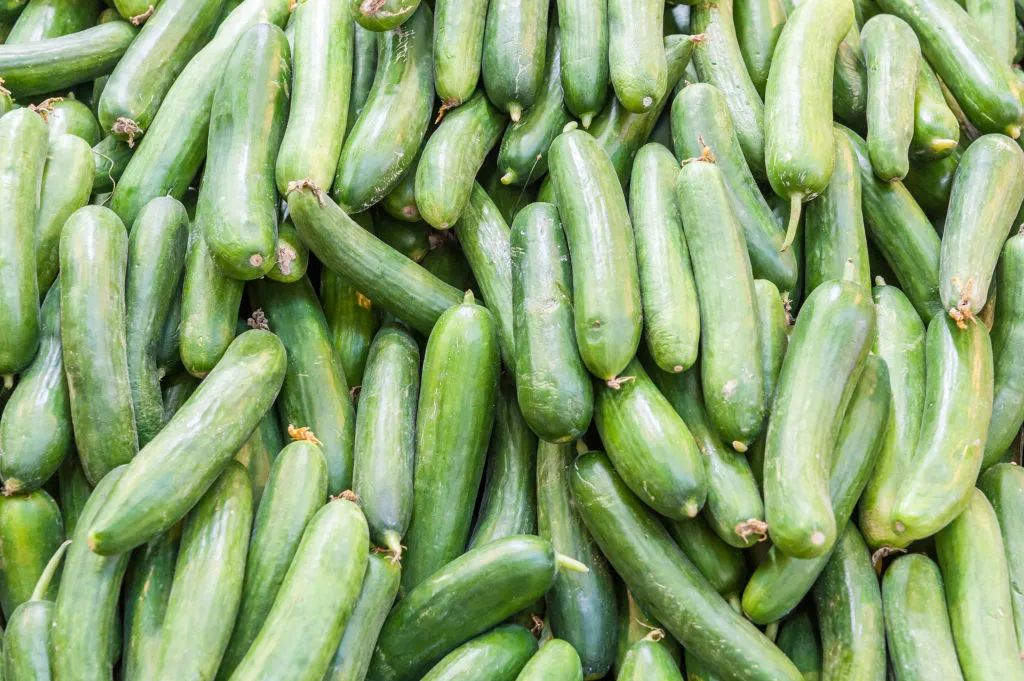
Research conducted at the University of California, Davis, found that cucumbers quickly become waterlogged and lose a lot of their flavor if stored in a refrigerator. Instead, store your cucumber on your counter or in a pantry.
If you want your cucumbers to be cool, you can temporarily leave them in the fridge or store slices in ice water.
Keep Canned Tuna In The Cupboard
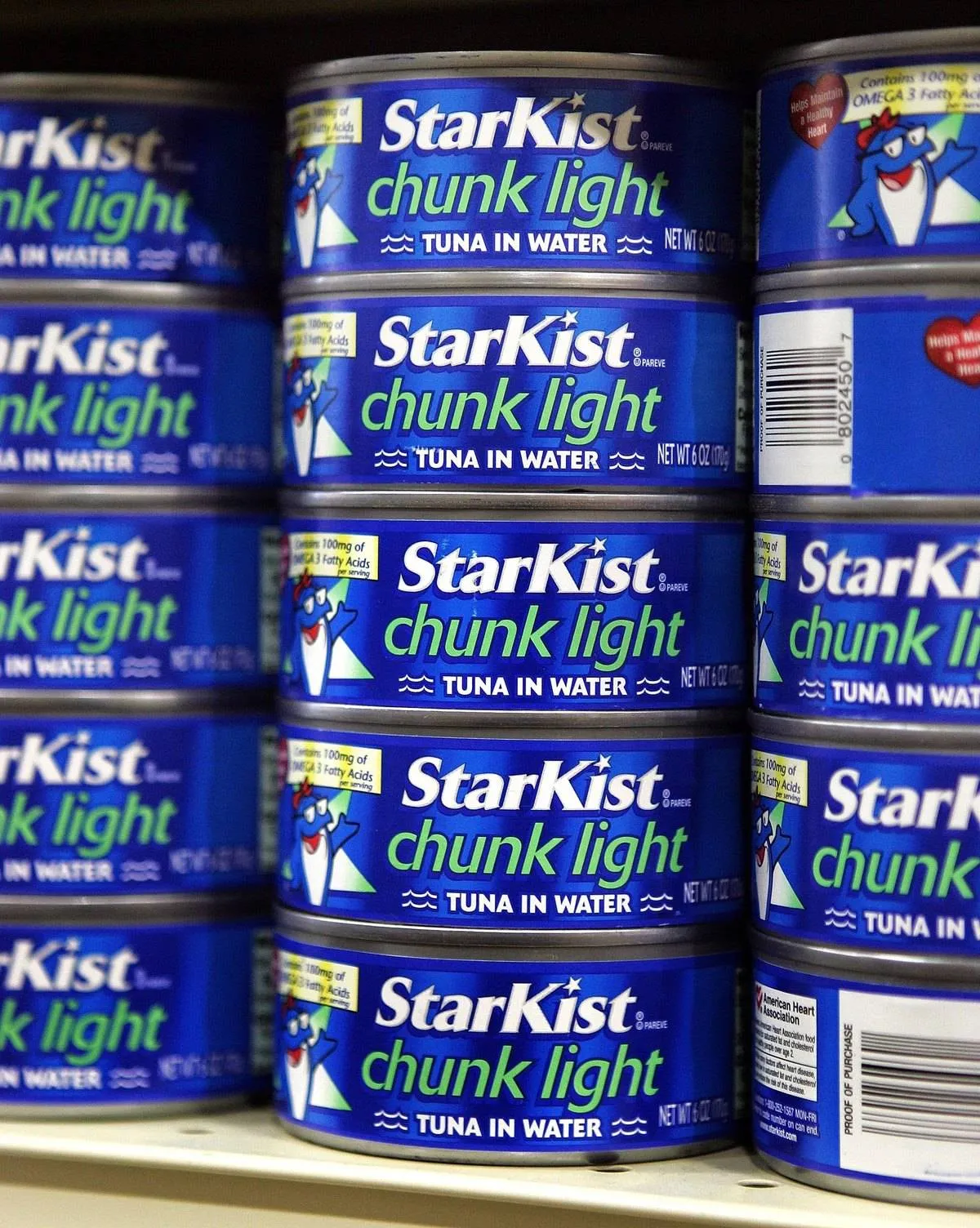
According to The Spruce Eats, canned tuna can last for about one year if stored in a dark, cool cabinet.
The same is not true for fresh tuna or even opened cans of tuna, though, so put those in the fridge ASAP.
Grow Your Own Basil
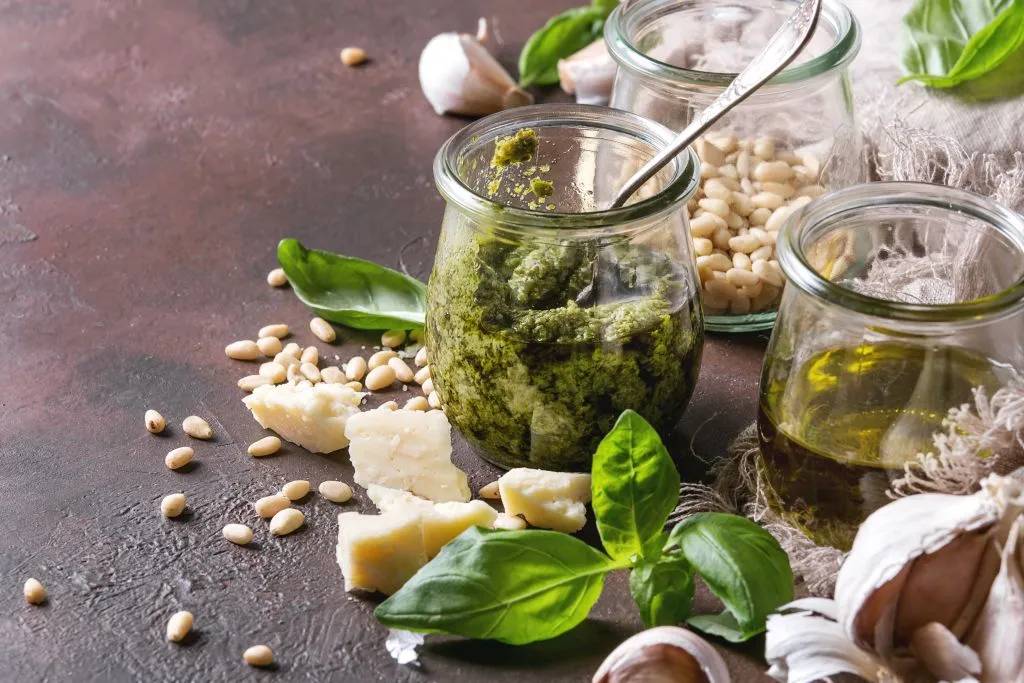
Refrigerators are dark, and your basil can't get any sunlight in there. According to The Kitchn, Basil has been known to wilt in the fridge and thrive on a windowsill.
Instead, place any leftover basil in a cup half full of fresh water, and then place it near a sunny window.
You Can Leave The Salad Out
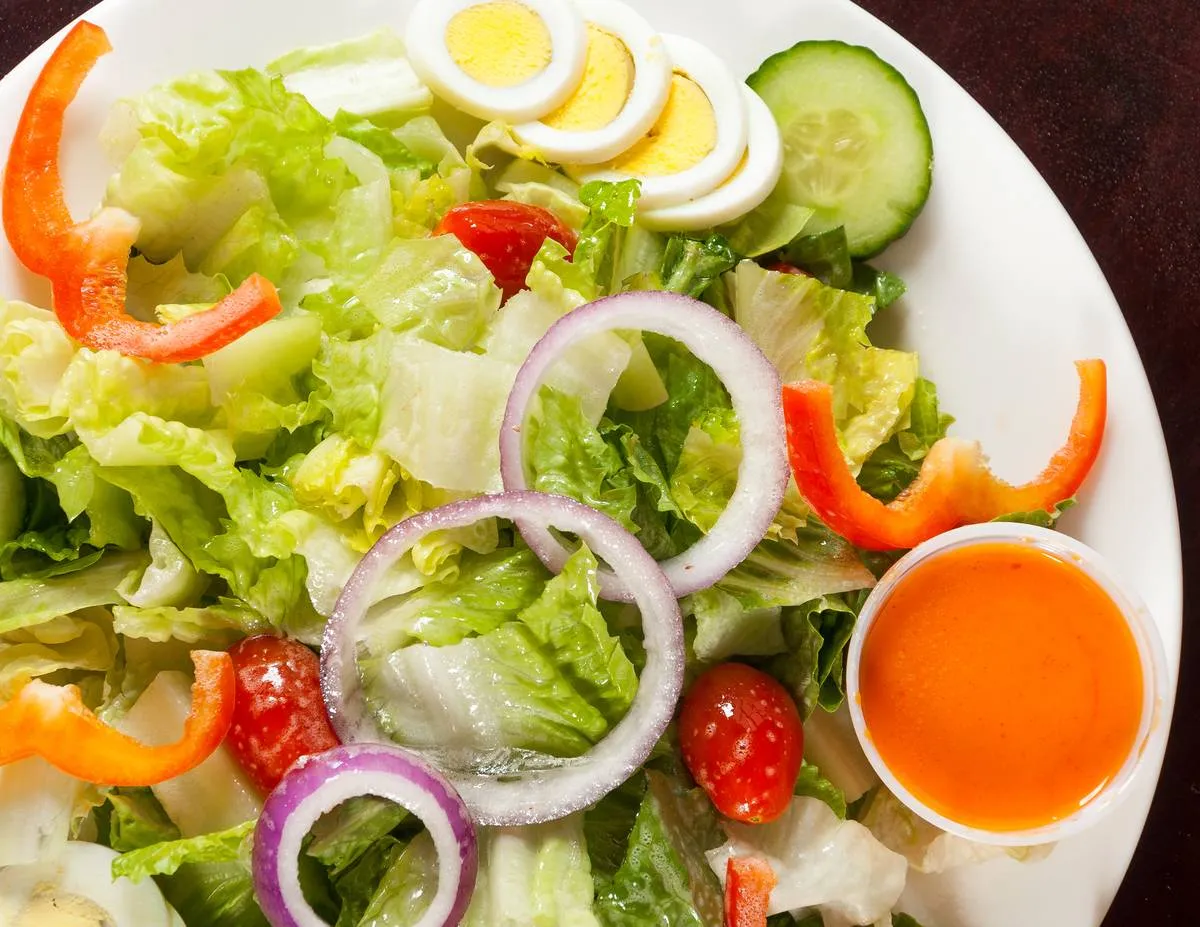
You can also leave full salads out of the fridge for about two hours, as long as that salad doesn't contain cheese or other dairy products.
According to The Whole Protein, lettuce is perishable, but it is still safe to consume even after being left on the counter for an hour or so.
Avocados Do Better On The Counter
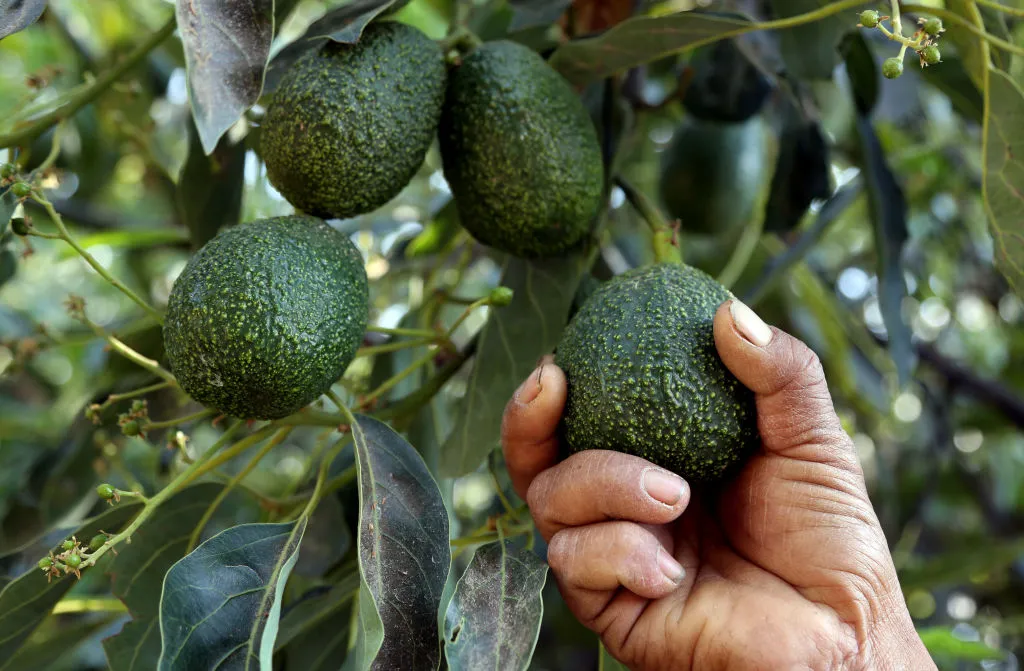
The cold air of a refrigerator causes avocados to ripen more slowly. According to The Pioneer Woman, leaving your avocados in a sunny spot on the kitchen counter will have them thrive!
But if your avocados are starting to get too ripe, you can pop them in the refrigerator to slow down the process.
Eggs Aren't Kept In The Fridge In Some Parts Of The World
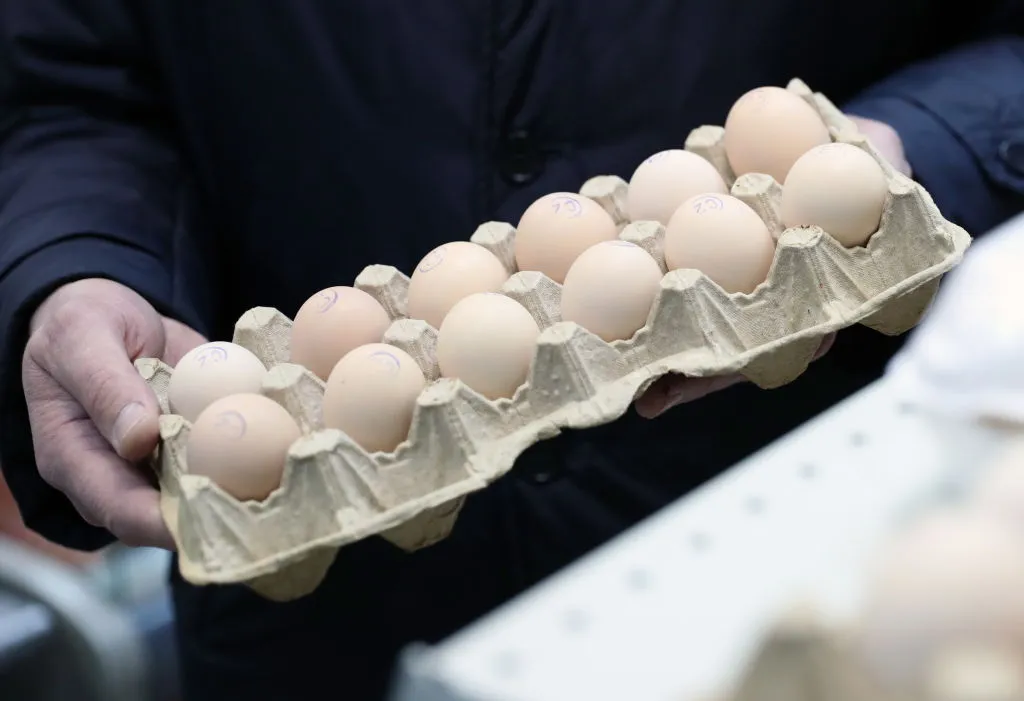
In some countries, such as the UK, eggs aren't kept in the refrigerator. However, this is not true for the US.
Please keep in mind that the FDA recommends keeping eggs in the refrigerator because they're usually washed of their protective coating.
Who Puts Potato Chips In The Fridge?
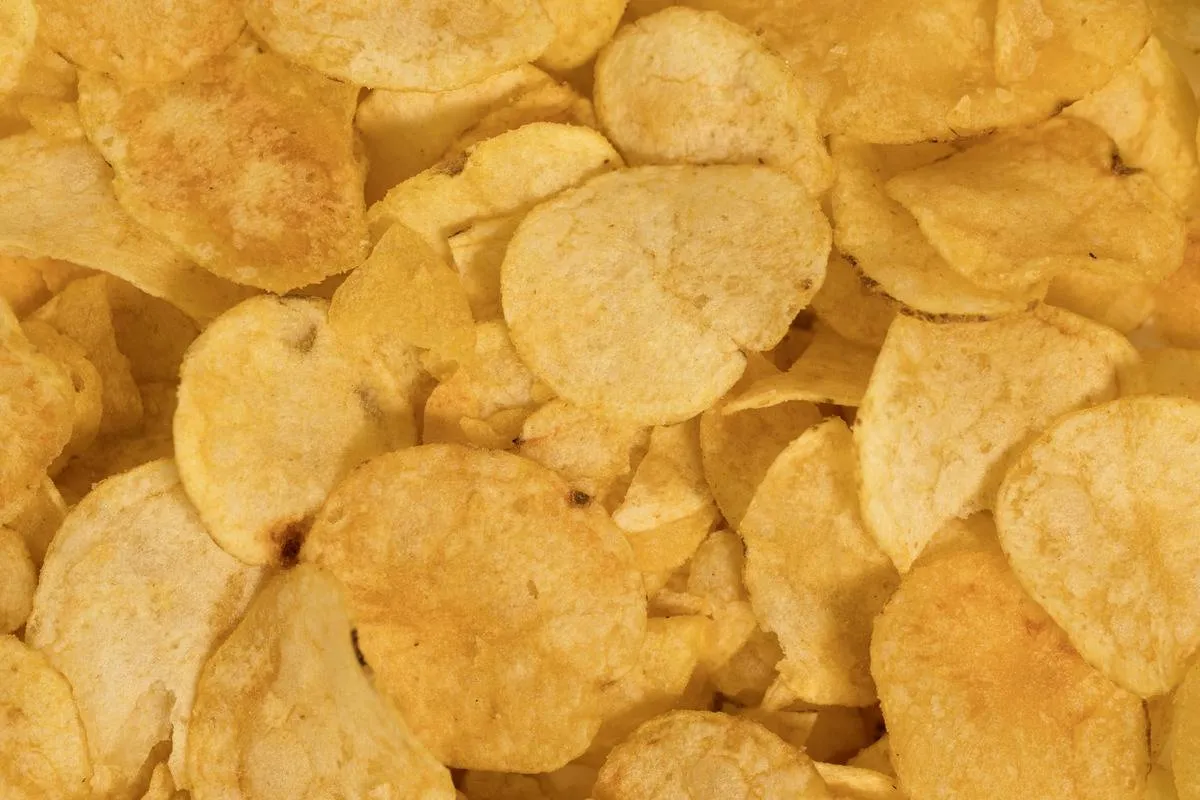
A high enough salt and vinegar in potato chips make them safe to eat at room temperature, even after you open the bag.
According to Foods Guy, it is best to store potato chips in a cool, dry environment, such as a pantry, and in an air-tight resealable bag.
Sweet Potatoes Stay In The Potato Drawer
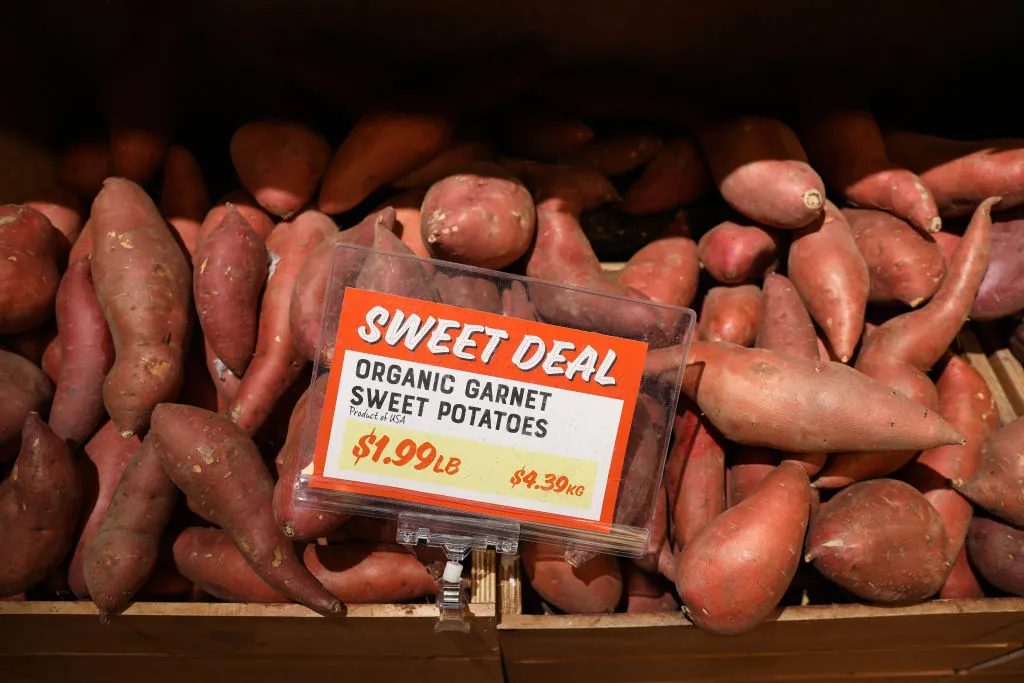
When you put sweet potatoes in the fridge, the cell walls fortify and become hard, even after the potato is cooked, per Tase of Home.
Store these potatoes in a cool, dark, and dry place where they can receive good airflow. If they get too moist, they can rot or become moldy.
Keep Apples Out Of The Cold
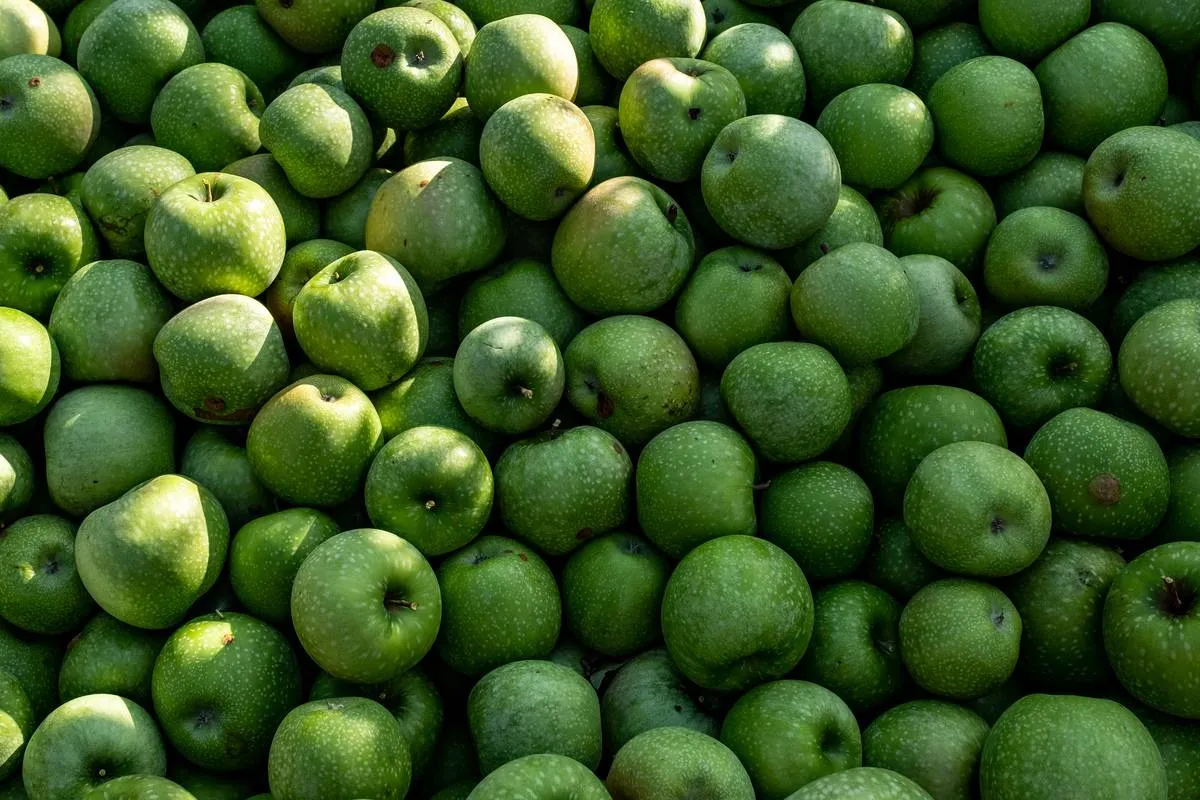
Apples can last a week or two at room temperature but not as long If kept in the fridge. According to the Chemical Institute of Canada, apples can cause other fruits to ripen faster because of the natural gas that they emit, ethylene.
Plus, enzymes within apples become far more active at room temperature, making the apples way more nutritious.
The Fridge Will Make Donuts Stale
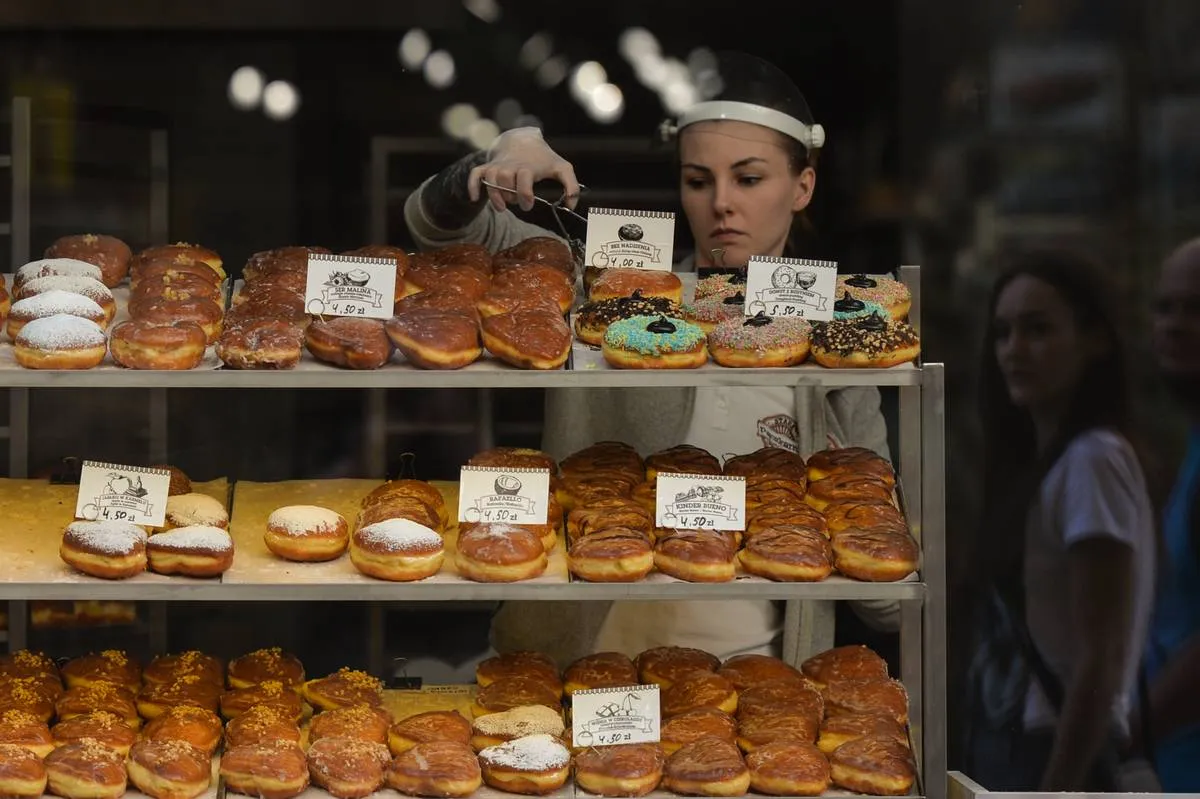
Storing donuts in the fridge will only dry them out and make them go stale faster. That being said, keep in mind any cream-filled donuts or those with a dairy topping need to be put in the fridge, or else they will spoil.
Pastry chef Jen Greif says, "To best keep doughnuts overnight, wrap them in a napkin and store them in a paper bag."
Leave Olive Oil In The Pantry
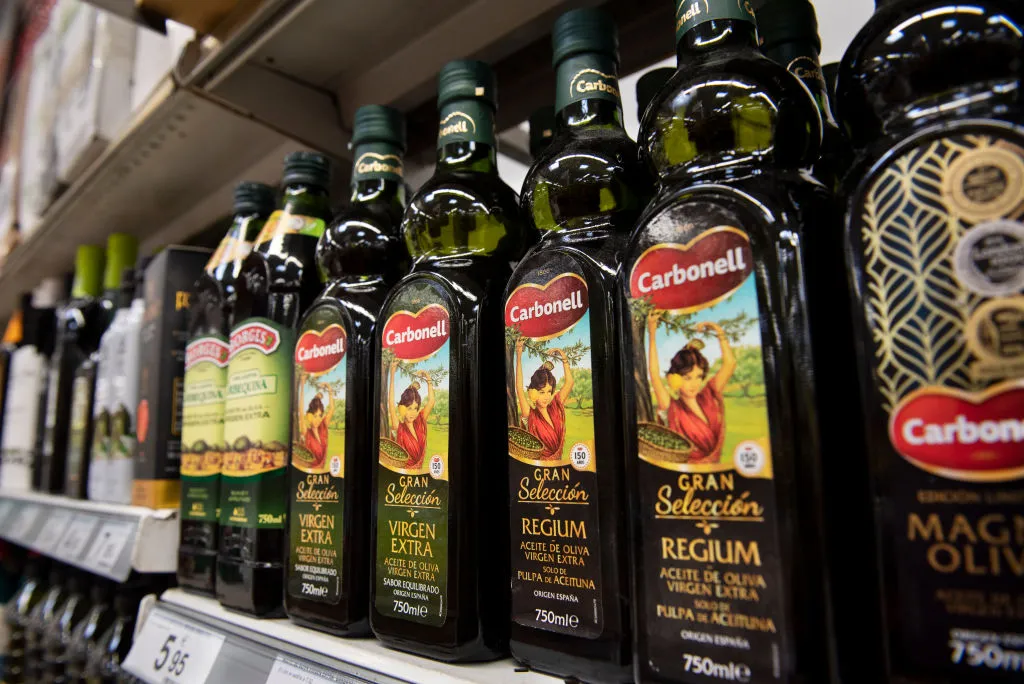
You probably have always stored your olive oil in the pantry, which is definitely where it belongs.
According to About Olive Oil, the cool temperatures in a refrigerator will only cause the oil to harden and form something resembling butter.
Keep Your Spices On The Shelf
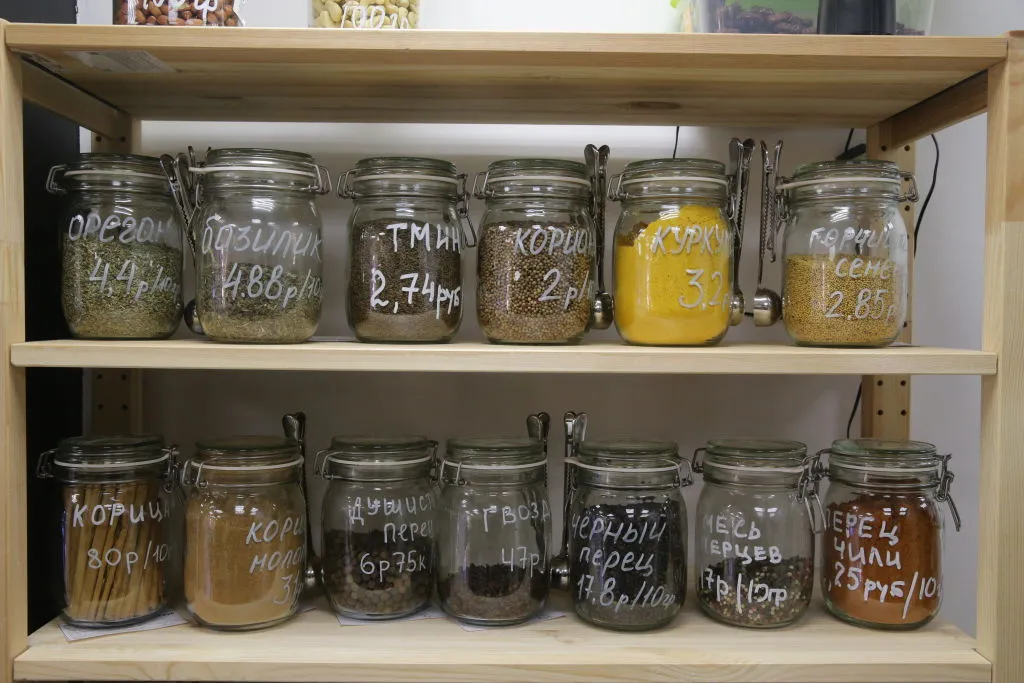
f you put dried or powdered spices in the fridge, they can absorb moisture and other odors from your refrigerator.
According to My Recipes, keep spices away from humidity and heat, as it will alter the flavors, and instead store them in tightly sealed containers.
Keep Olives Out Of The Sun And They're Okay
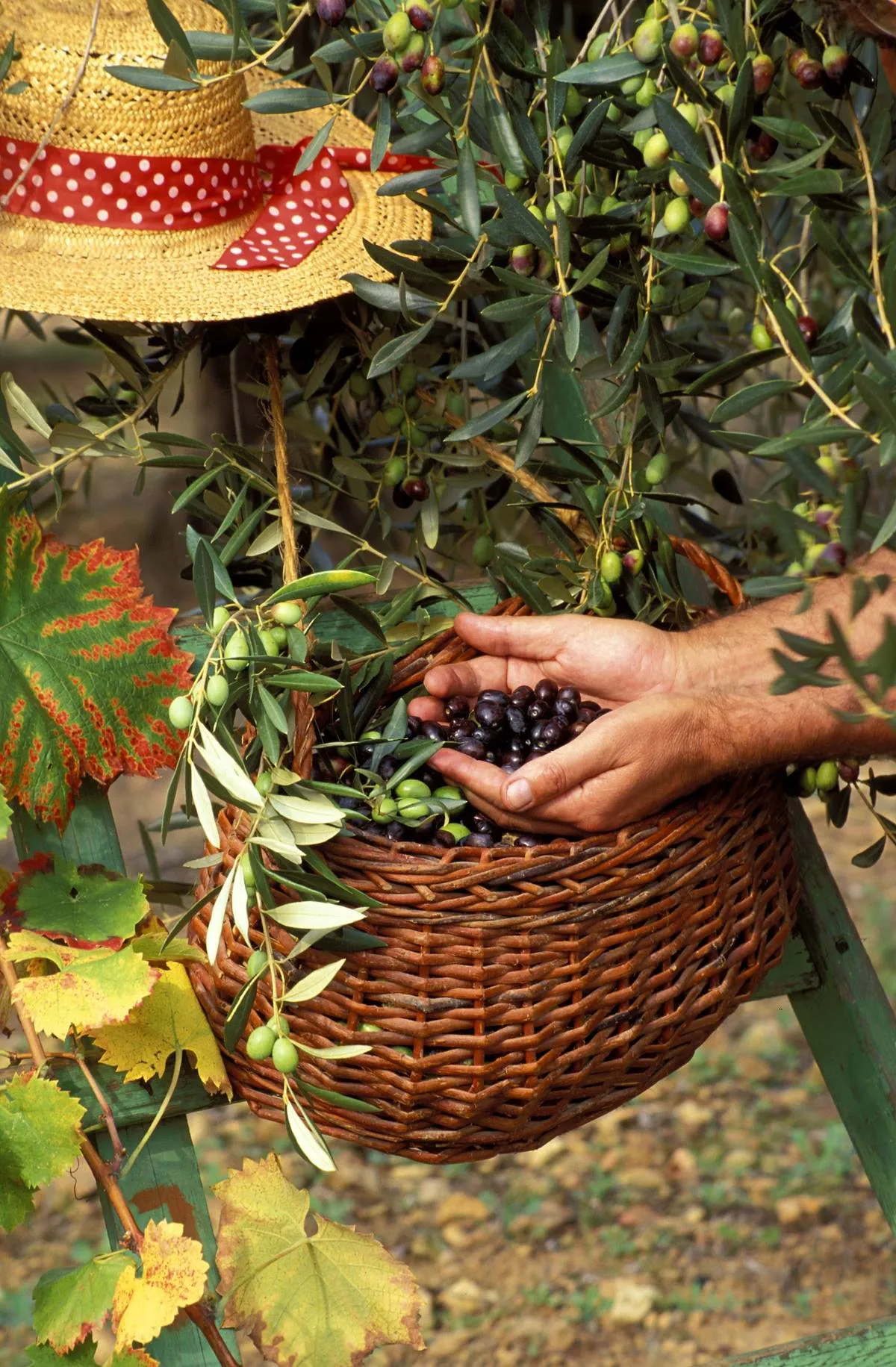
Because olives are brined, they don't need to be kept in the fridge. However, make sure to keep canned olives out of the sun.
According to Dr. Ronald McCoy, spokesperson for the Royal Australian College of General Practitioners, people shouldn't store an opened tin or can in the fridge once opened, as the tin or iron can dissolve into the food, giving it a metallic taste.
Mustard Can Stay In The Cupboard
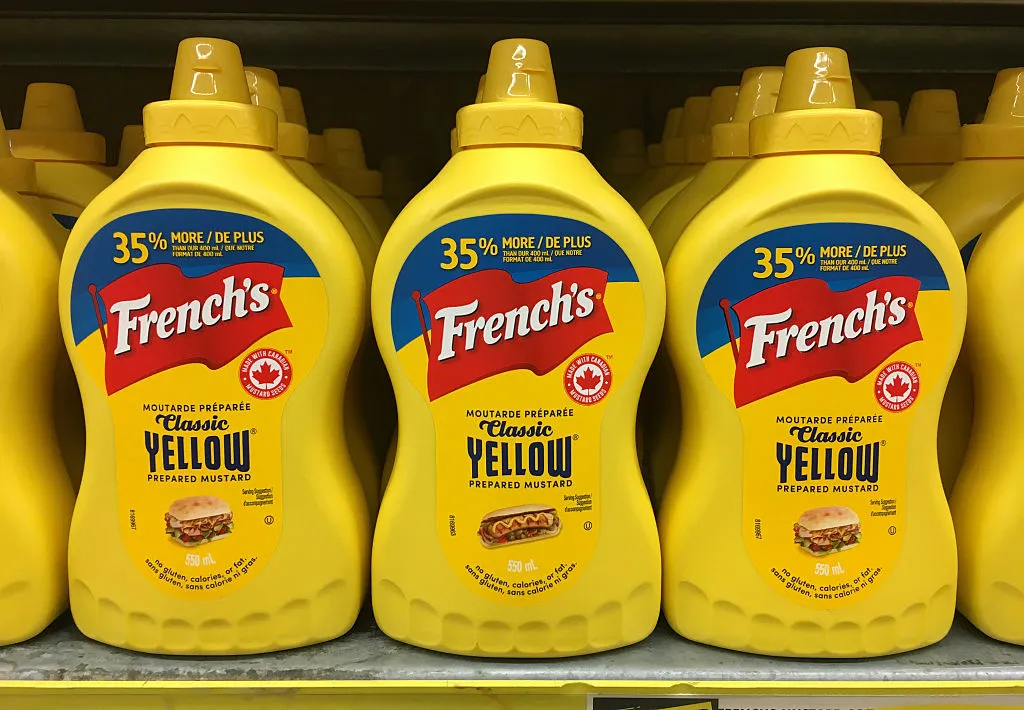
Mustard can last even longer out of the fridge than ketchup because it contains a natural acid that acts as a preservative.
According to French's, it is perfectly acceptable to store mustard in the fridge or at room temperature, depending on the temperature a person enjoys the condiment. That being said, they do instruct you to refrigerate Dijon and Horseradish mustards, or they will lose their flavor.
Vinegar Preserves Itself
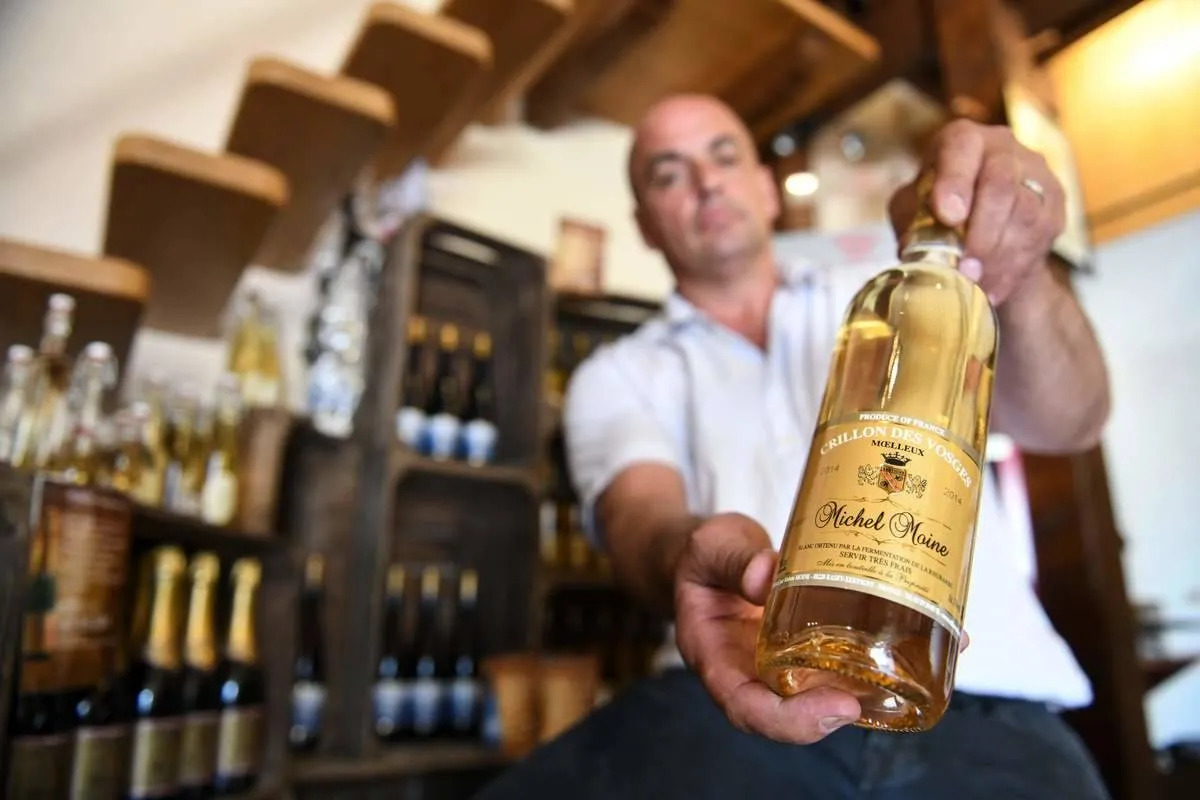
According to Survival Freedom, vinegar has so much acid that it acts as its own preservative, so you do not need to store it in the fridge.
Once you buy vinegar, you really don't need to worry too much about it until you need to use it.
Crackers Will Go Stale Faster In The Fridge
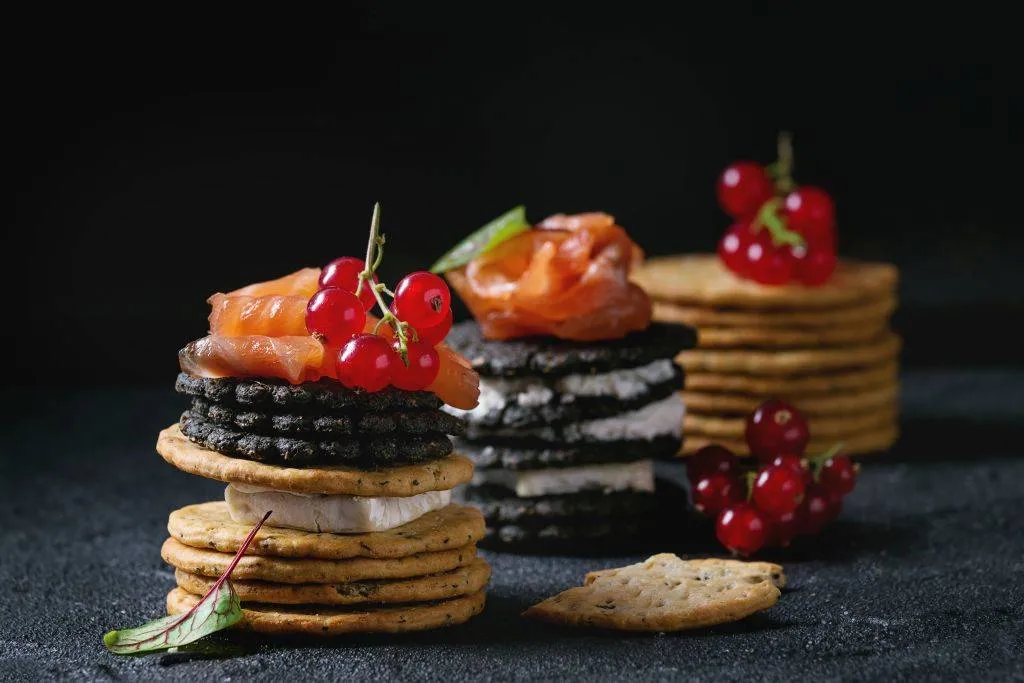
Contrary to popular belief, storing crackers in the fridge will not prolong their self-life.
According to Still Tasty, crackers will last up to two months if stored correctly in a pantry. There is no reason to take up fridge space.
Ketchup Doesn't Need To Be Stored In The Fridge
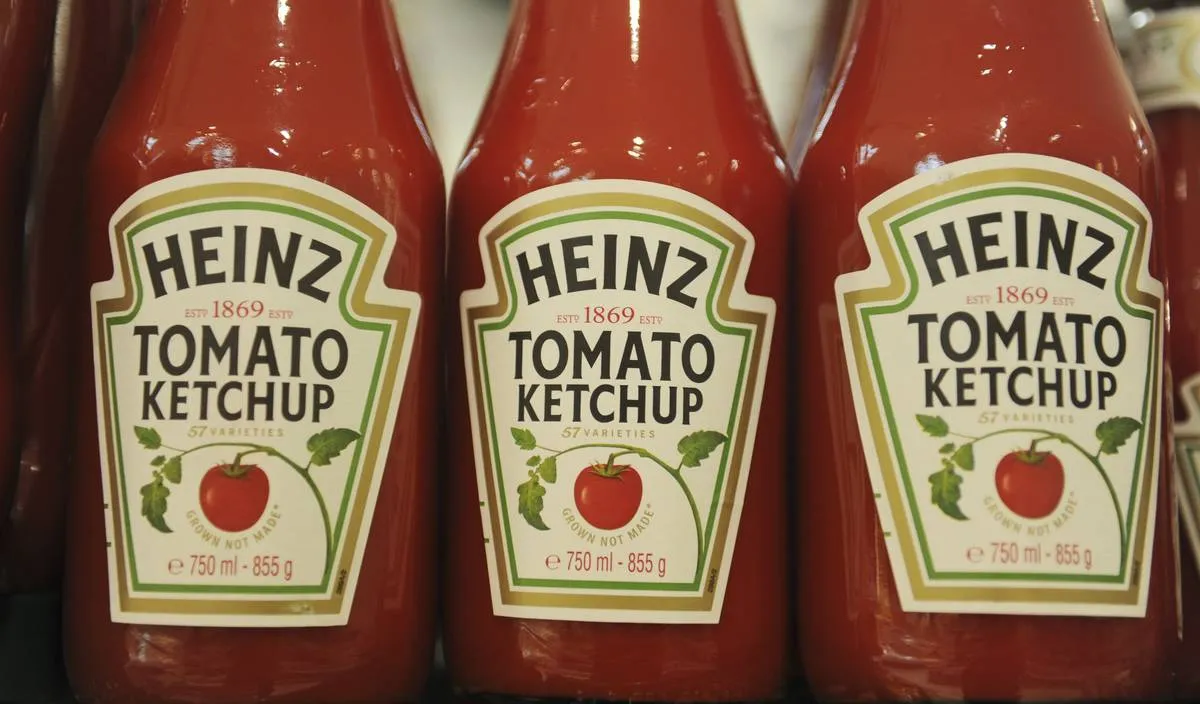
Contrary to popular belief, ketchup doesn't actually need to be stored in the fridge, even after the bottle is open.
According to dietitian Dr. Sarah Schenker, "There's no need to keep ketchup in the fridge. Not only does it contain vinegar, but tomatoes are naturally acidic, and this helps to preserve the product in ambient (room temperature) conditions."
Salami Needs To Breathe

Unless your salami specifically says you need to store it in the fridge, there's really no need.
According to Eat Cured Meat, as long as the casing of the salami is whole and uncut, it is perfectly fine to leave it on the counter at room temperature.
Aged Cheese Is Cured
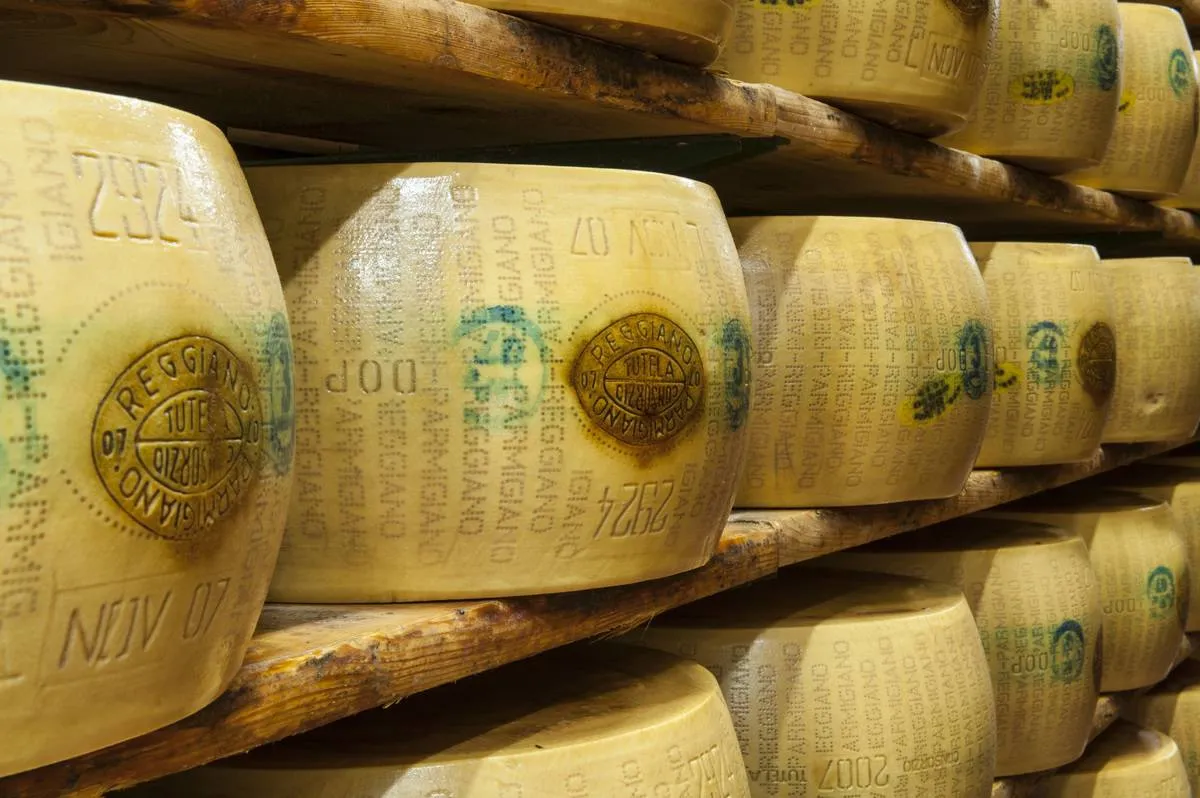
When it comes to aged cheeses, it is important to know they can stay on the counter for some time and breath, but it is best to store them very carefully wrapped in a crisper drawer.
According to Real Simple, when it comes to aged cheese, "First wrap in wax or parchment paper, then add a layer of plastic wrap."
Beef Jerky Is Another Cured Wonder Food
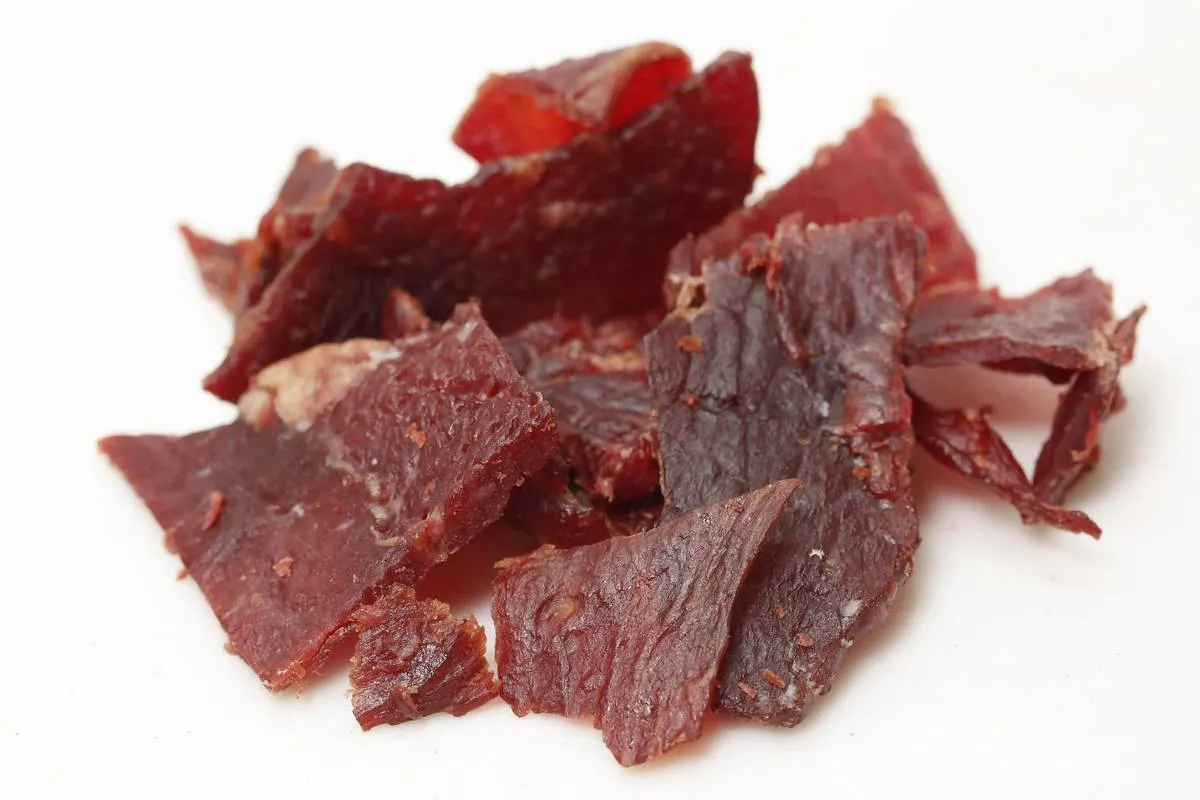
Jerky, like salami, is cured and should be kept outside of the fridge. The tasty product has also had moisture drawn out of it, helping it survive at normal temperatures.
According to the National Center For Home Food Preservation, "properly dried jerky will keep at room temperature for two weeks in a sealed container."
Keep Bananas Out In The Open
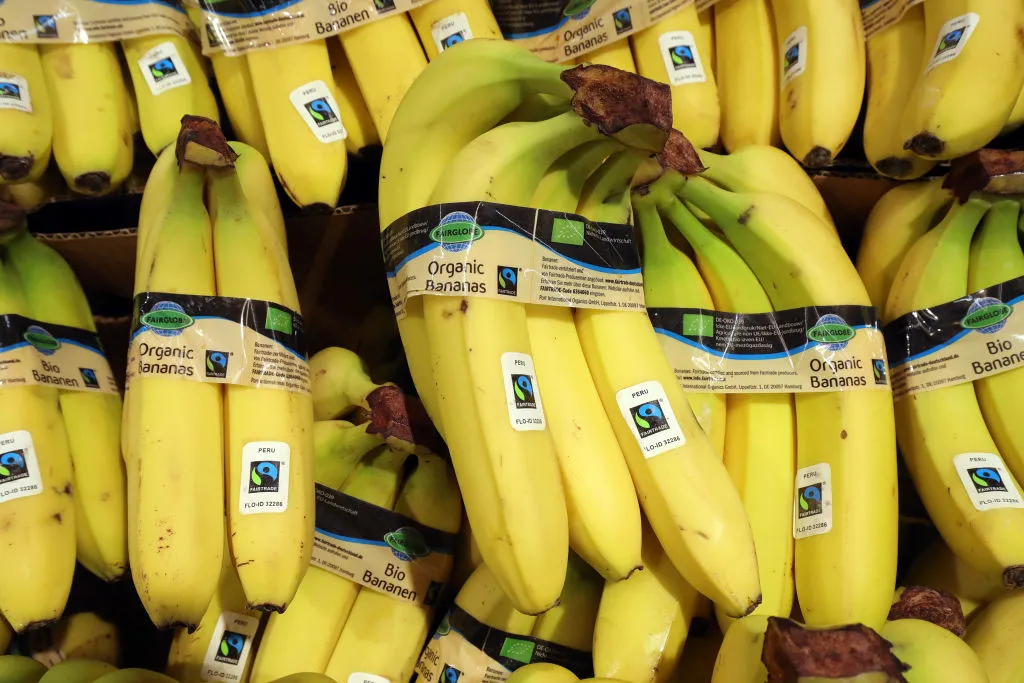
Cold temperatures actually slow down the banana's ripening process. Chef Sara Moulton recommends that the best place to store bananas is directly on the kitchen counter.
If you really want to keep bananas around for a long time, slice them into small pieces and store them in plastic bags in the freezer. Plus, frozen bananas make for perfect for smoothies!









